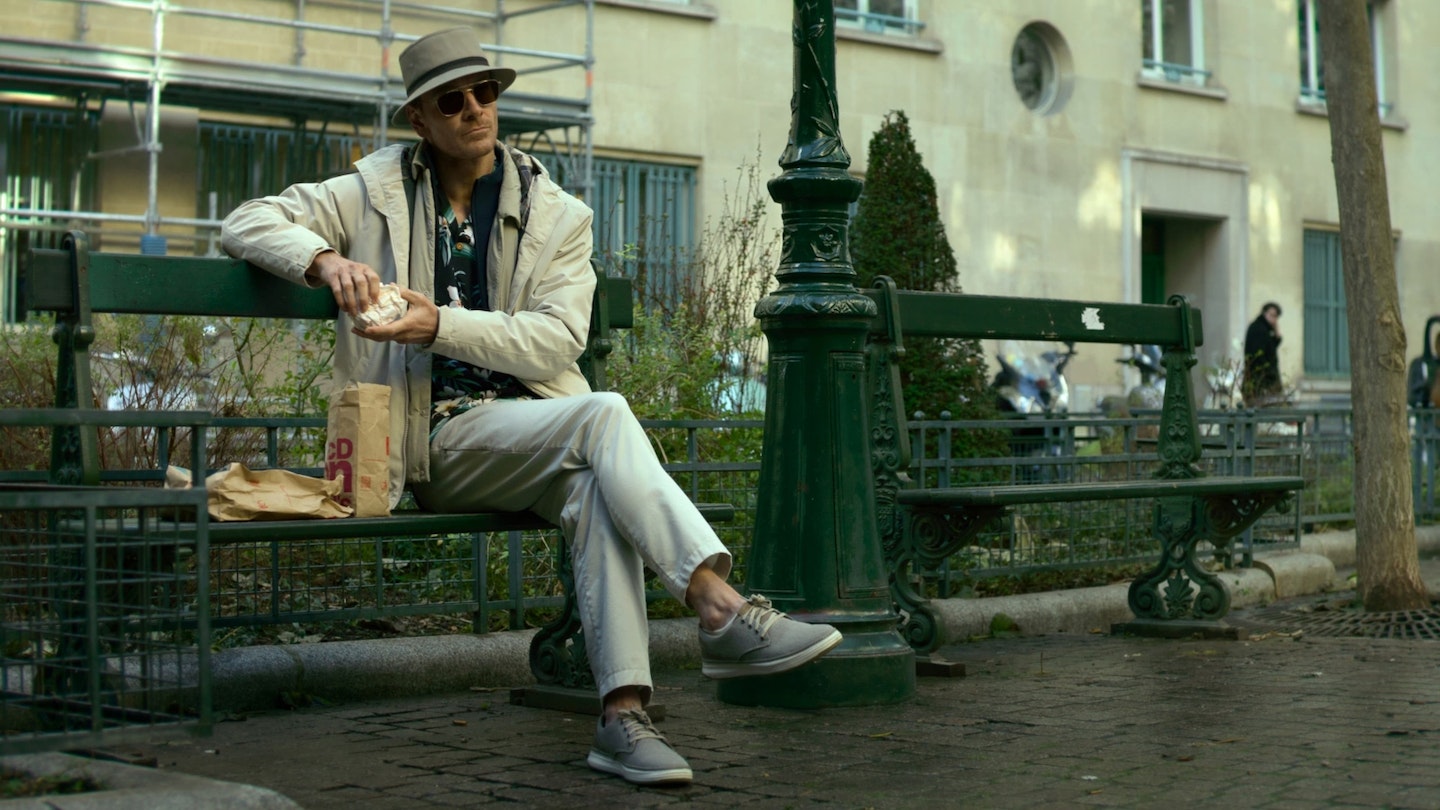Do you have a Netflix watchlist as long as your arm yet still find yourself scrolling and scrolling for something to watch? Have you found yourself rewatching the same fistful of films because the range of choice is simply overwhelming? Well, if that be what ails you, then Doctor Empire is here with the cure. We've crunched the numbers, watched the movies, triaged the collective watchlist, and now we are here to help. There’s a great wide world of comfort watches, underseen gems, and all-time greats just waiting to be explored among Netflix’s expansive catalogue - and our list of the best movies on Netflix UK has been scrutinously selected to give you good people nothing but the good stuff. So, whether you’re looking for some cracking comedies, banging blockbusters, cerebral crime thrillers, feel-good shots of pure serotonin, heart-stopping horrors, Netflix originals, or the cream of the foreign film crop, we’ve got you covered. Feast your eyes on our list of Netflix UK finest features below (presented in no particular order), and queue up your next big night in.
Once you've watched all the movies the platform has to offer, why not check out our rundown of the best TV shows on Netflix? Or, for your factual fix, perhaps the best documentaries on Netflix too.
The Killer (2023)
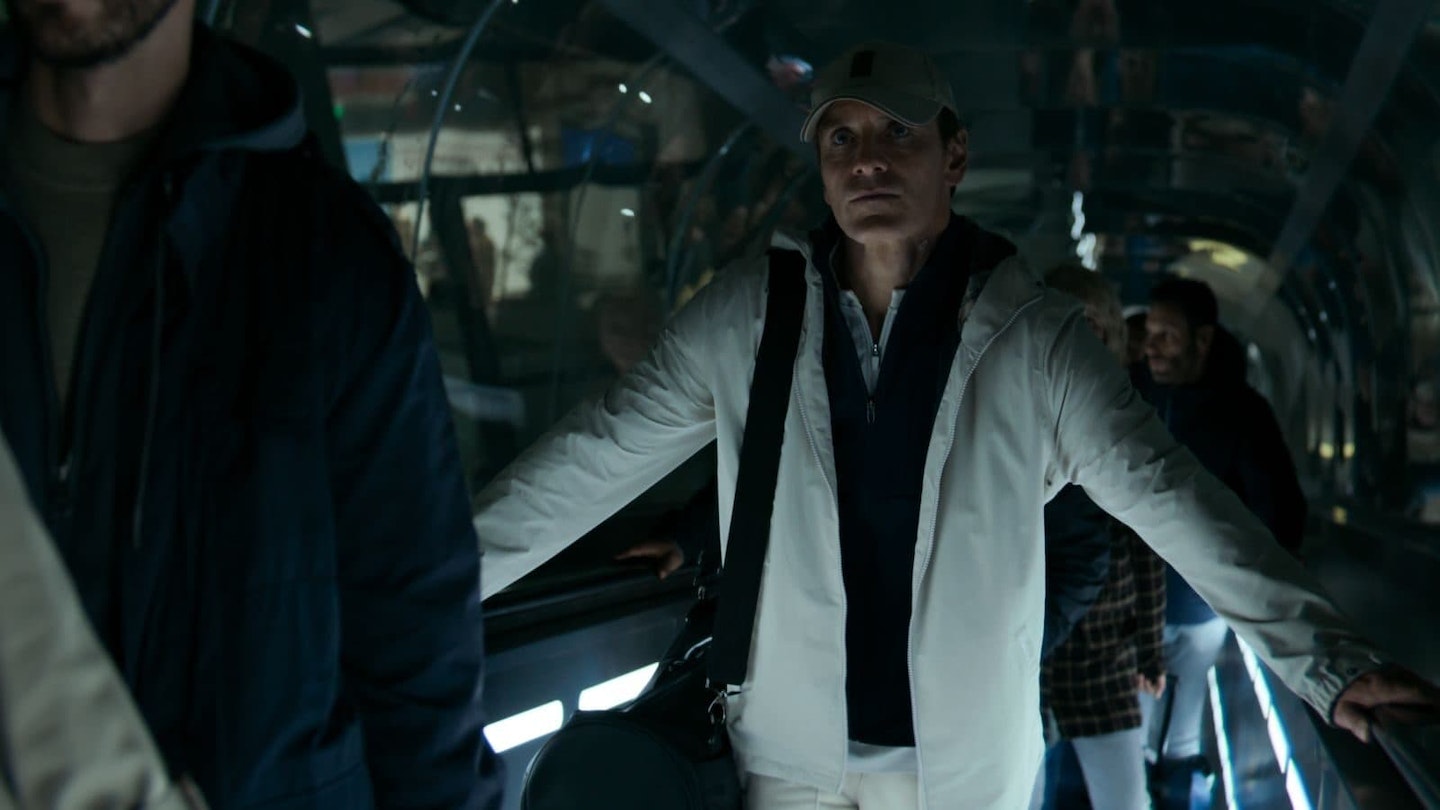
If 2020’s Mank represented David Fincher taking an earnest directorial diversion onto Passion Project Lane, paying homage to his late father with a black-and-white Golden Age Hollywood biopic that split critical opinion, then consider this cerebral thriller a sublimely self-aware bit of course correction. Making his first screen appearance since 2019, Michael Fassbender is impossibly chill as the eponymous assassin, a Smiths loving, bunless McMuffin eating contract killer who embarks on a globetrotting quest for bloody retribution after a hit goes wrong. Hypnotic in tone and formal presentation, Fincher’s film - a masterclass in sound design, framing, and sustained tension - sees the Fight Club filmmaker continue his enquiry into our world’s oddballs and loners whilst reflecting on his own (in)famously meticulous movie making method. The result is Fincher’s most Fincher-esque film in years. And *THAT* fight sequence? Brutal!
Read the Empire review here.
Fair Play (2023)
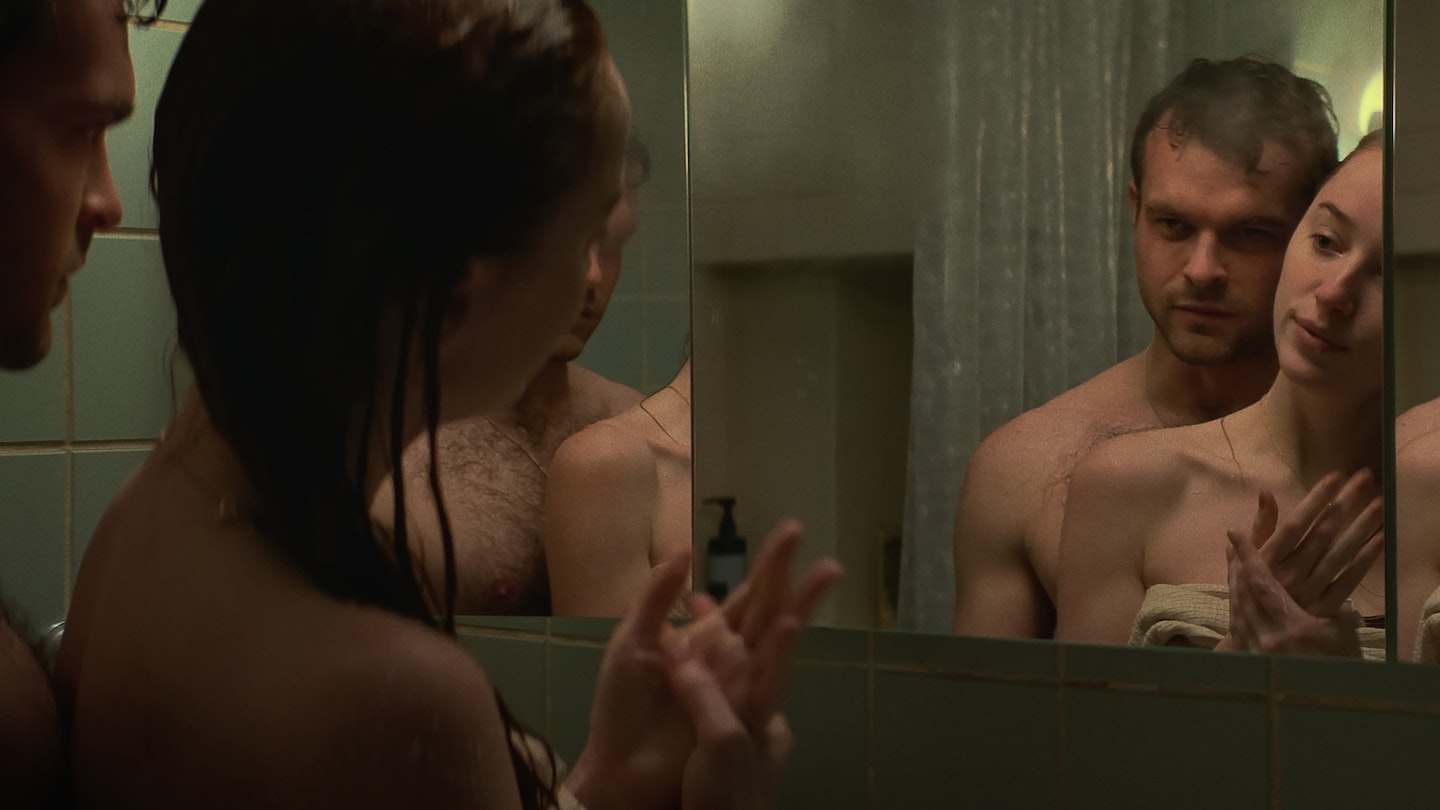
Written and directed by debut feature filmmaker Chloe Domont, 2023 Sundance Film Festival darling Fair Play excruciatingly underlines the price to be paid for mixing business with pleasure in the cutthroat world of finance. Part erotic thriller in the Adrian Lyne mould, part bruising social commentary on sex-based power dynamics in a post-MeToo world, Domont’s steamy-to-the-point-of-scalding film sees Alden Ehrenreich and Phoebe Dynevor on electric form as hedge fund analysts Luke and Emily. What starts as a sensually lensed workplace romance between the young couple soon sours however when Emily begins to get ahead at the duo’s firm, leading the fragility of male egos to be laid bare as the duo’s passion and ambitions destructively collide. Smart, sexy, and eventually shocking as it reaches a breathless climax (no pun intended), Domont’s debut marks the director out as one to watch.
Read the Empire review here.
Talk To Me (2023)
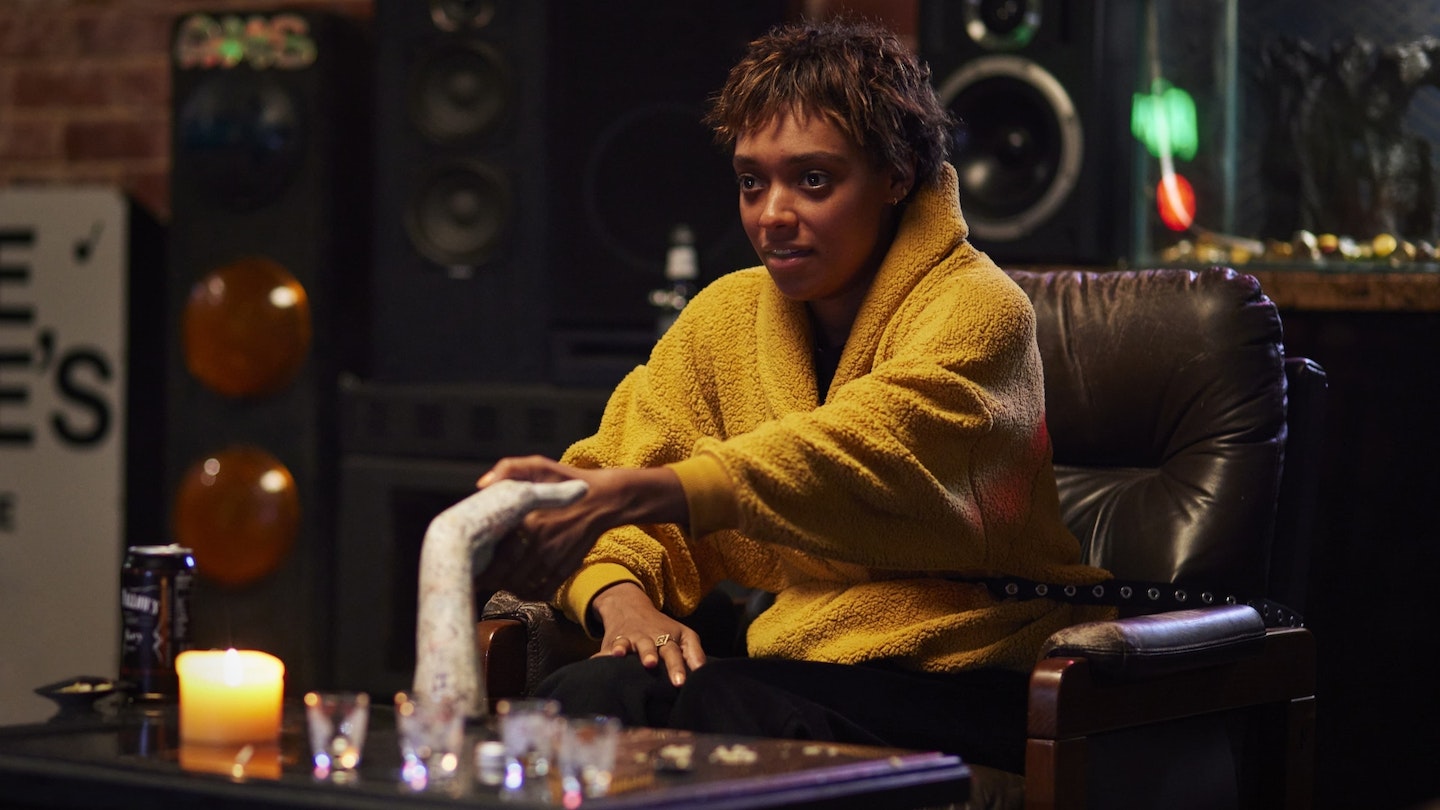
With A24 possession chiller Talk To Me, filmmaking twins Danny and Michael Philippou - better known to many as YouTube duo RackaRacka - add another soon-to-be-classic to the illustrious canon of great Australian horrors. Newcomer Sophie Wilde is captivating as Mia, a grief-stricken teen who finds herself caught up in a viral trend that has teens holding an embalmed hand and getting high off of 90 second sojourns into the spirit world. Needless to say, not all involved in this possession-based pursuit can expect to live to TikTok their tale. As much a bleak meditation on the all-consuming nature of addiction as it is a jumpscare-laden Gen Z riff on Flatliners, Talk To Me - which already has a sequel on the way - breathes new life into a genre long since thought (un)dead.
Read the Empire review here.
In The Heights (2021)
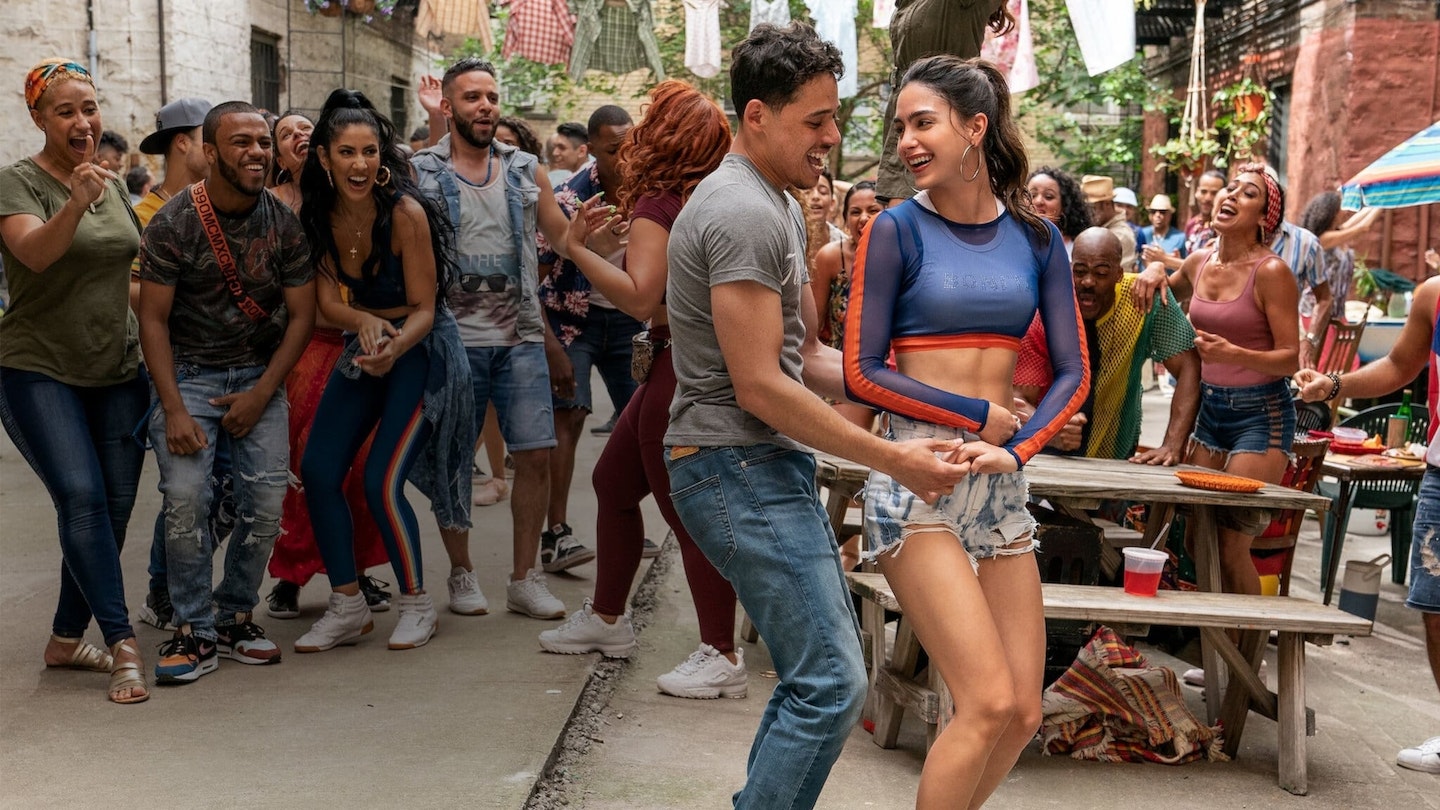
Before Hamilton came along and put Lin-Manuel Miranda in all of the rooms where it happens, the musical multi-hyphenate first penned In The Heights, an exuberant paean to community and an emotional exploration of belonging set beneath the baking sun in Washington Heights. Jon M. Chu’s all-singing, all-dancing adaptation - which sees sparks fly between Hamilton star Anthony Ramos’ bodega owner Usnavi and Melissa Barrera’s aspiring fashion designer Vanessa as they chase their dreams - is a shot of pure cinematic sunshine. Partially animated rap battles, massive ensemble dance numbers, gorgeous romantic ballads, and candlelit blackouts all convalesce to help bring a heart-on-sleeve story of lovers, dreamers, and winning lottery tickets irresistibly to life. We must’ve listened to the soundtrack for this one at least, ooh, 96,000 times by now!
Read the Empire review here.
Judas & The Black Messiah (2021)

Shaka King’s sophomore feature is a tragic drama of biblical proportions. It tells the jaw-slackening true story of how small-time criminal William O’Neal (LaKeith Stanfield) became an FBI informant in late 60s Chicago, infiltrating a local chapter of the Black Panther Party and befriending its charismatic young leader Fred Hampton (Daniel Kaluuya) before ultimately betraying him. The basic undercover set-up and Sean Bobbitt’s lithe camerawork invariably invite comparisons between this and Martin Scorsese’s The Departed, but King - working with two leads on incendiary form - ensures Hampton and O’Neal’s story is never lost in homage. Instead, the director uses the machinations of a thriller to craft a soul-stirring elegy to one of the civil rights movement’s most vital voices, offering a scathing condemnation of systemic racism whilst refusing to reduce this fascinating, knotty chapter in history to simple moral binaries.
Read the Empire review here.
Parasite (2019)
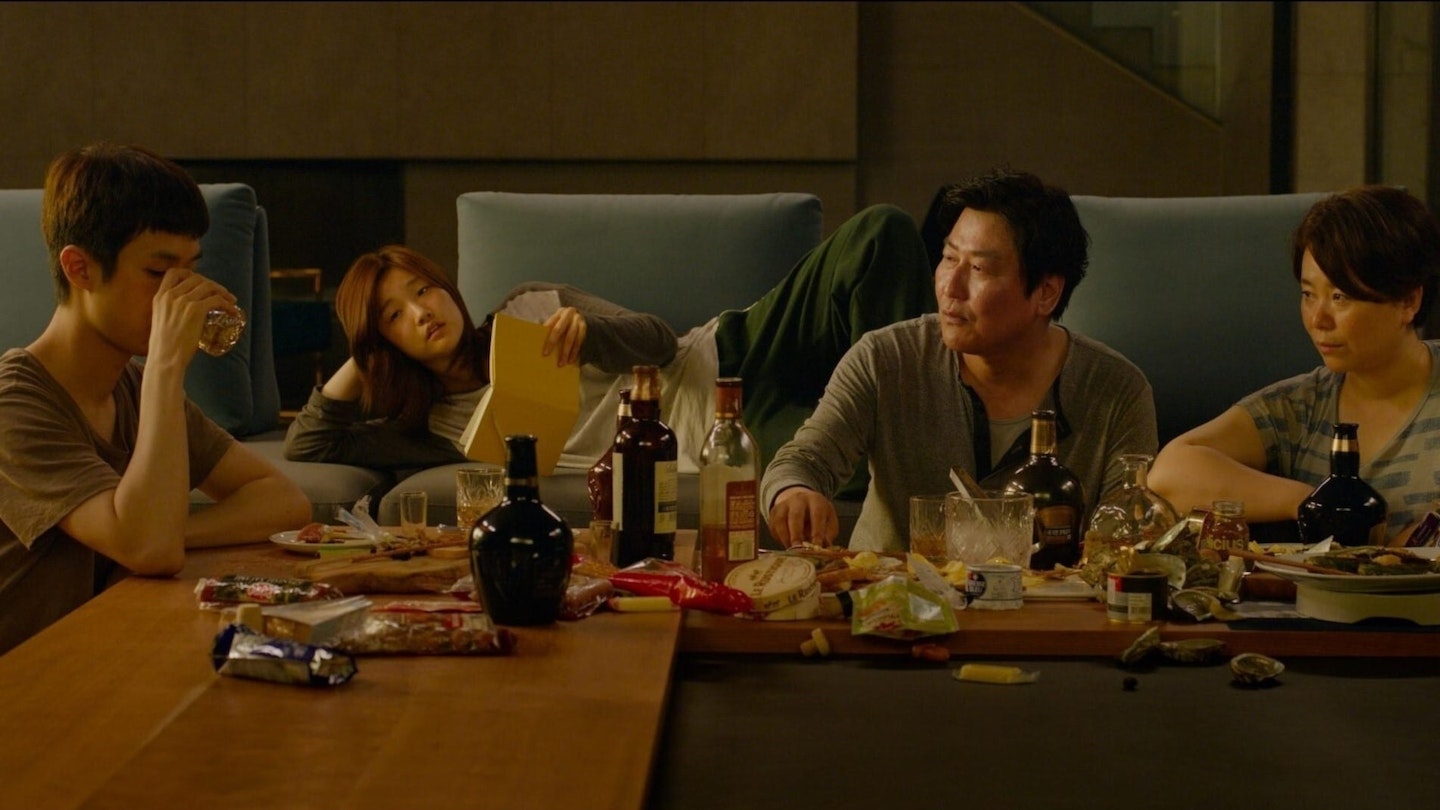
When Parasite won Best Picture at the Oscars back in 2020, it became the first non-English language movie to have done so – and it’s hard to imagine a more deserving first. A genre-defying, propulsive work of technical brilliance and conceptual genius, this South Korean juggernaut is a masterclass in suspense and release with more twists than a French pastry, brought to vivid life by a family of excellent performances from Song Kang-ho, Park So-dam, Choi Woo-shik and many more besides. Satirically razor sharp, blackly comic, and meticulously designed in every department, this (occasionally all too literal) skewering of the divide between the haves and have-nots is cinema at its purest and most powerful. In his Oscar acceptance speech, director Bong Joon-ho talked about the “one inch barrier” of subtitles that has historically so often stood between cinemagoers and exceptional international filmmaking. With Parasite, that barrier is comprehensively demolished.
Read the Empire review here.
The Suicide Squad (2021)
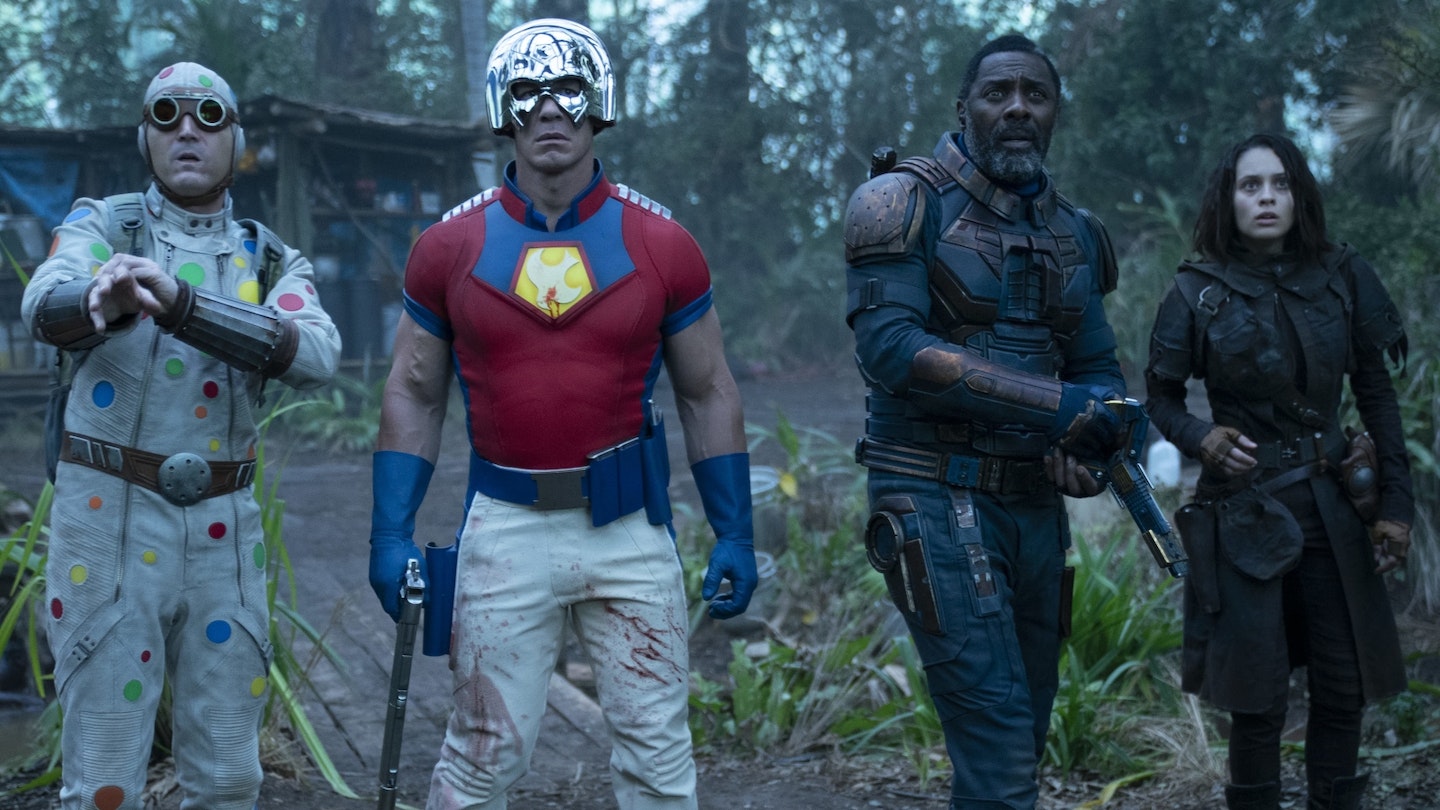
David Ayer’s 2016 DC supervillain team-up was merely *a* Suicide Squad, but James Gunn’s 2021 sequel/do-over is *The* Suicide Squad, both in name and nature. Washing out the bad taste of Ayer’s film in a shower of F-Bombs, bloodshed, crude bants, exquisite needledrops (The Pixies ‘Hey’ is perfectly deployed as the Squad slo-mo walk side-by-side in the rain) and, err, scenes of a King Shark-y Sylvester Stallone nature, Gunn’s (wo)men-on-a-mission caper is a balls-to-the-wall comic book blockbuster in the best way. Among the cast’s many inspired newcomers - David Dastmalchian’s Freudian mess Polka Dot Man, Daniela Melchior’s unexpectedly tragic Ratcatcher 2, Idris Elba’s badass Bloodsport - John Cena proves Gunn’s secret weapon. His Peacemaker, an unhinged hard-right Captain America with a pathologically misguided sense of patriotic duty, is the perfect embodiment of the schlocky silliness and satirical incisiveness that makes Gunn’s film so damn good.
Read the Empire review here.
Portrait of a Lady on Fire (2018)
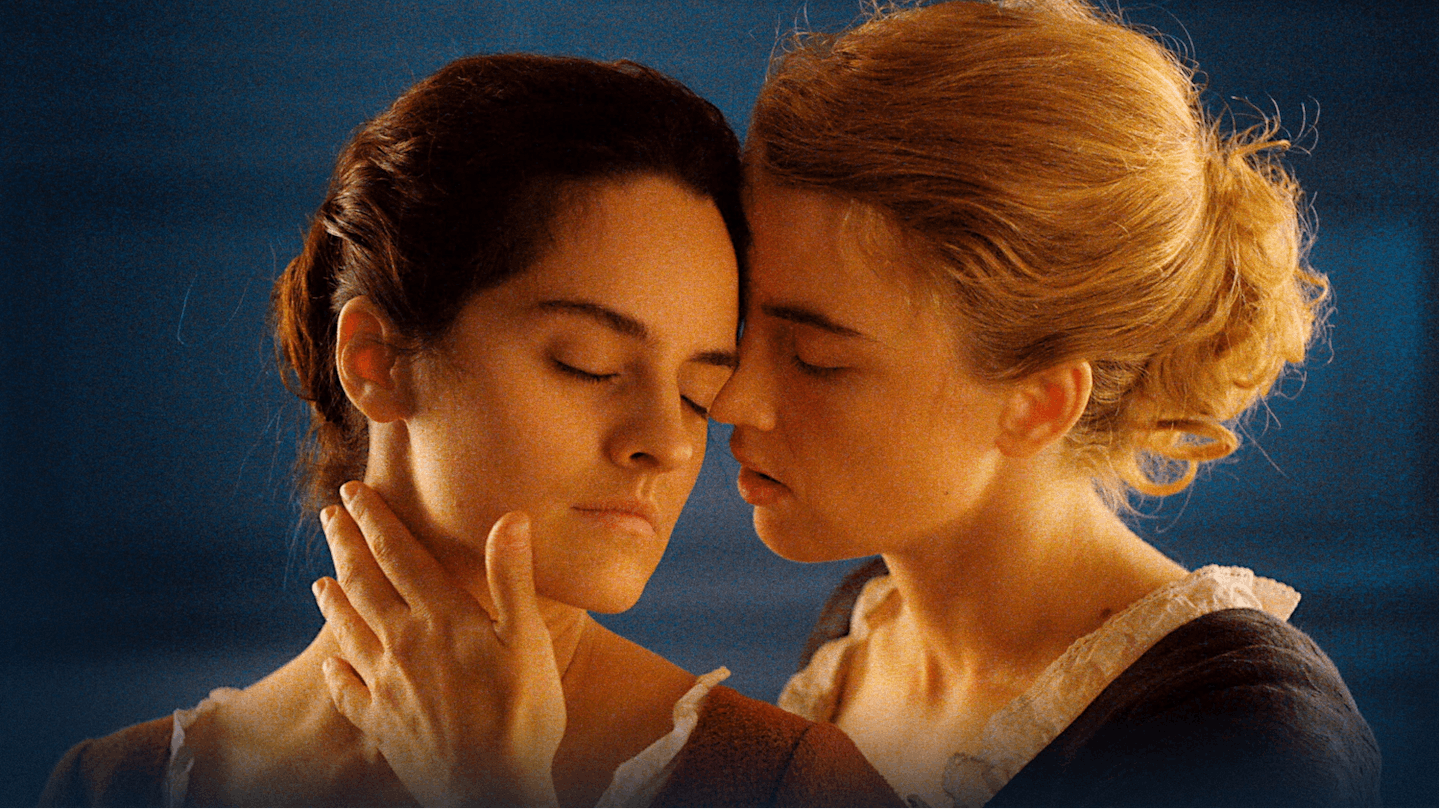
A sensuous, smouldering period romance from French auteur Céline Sciamma, Portrait Of A Lady On Fire’s debut in the top 30 of Sight & Sound’s most recent 100 Greatest Films Of All Time listcame as no surprise. An achingly beautiful and gently melancholic tale of forbidden love set in 18th century France, Sciamma’s film sees a burning desire kindled when painter Marianne (Noémie Merlant) is commissioned by a countess to secretly create a wedding portrait of her daughter, Héloïse (Adèle Haenel), whilst posing as her companion. Lensed with a painterly sensibility by DoP Claire Mathon (Saint Omer, Spencer), this is a lyrically written, masterfully directed reminder that though love’s touch can be fleeting, its presence in the art, memories, looks, and feelings it inspires springs eternal.
Read the Empire review here.
All Quiet on the Western Front (2022)

The third cinematic adaptation of Erich Maria Remarque’s seminal pacifist screed, Edward Berger’s Oscar and BAFTA award-winning All Quiet On The Western Front - a film sixteen years in the making - is no less bone-rattling nor soul-shaking than any of its forebears. The bleak tone of Berger’s film is set during a harrowing prologue, which sees a young German recruit shot by a French bullet. From there, we follow his uniform’s journey as it is cleaned, recycled, and readied to meet its next victim, bright-eyed teen recruit Paul Bäumer (Felix Kammerer). From there, we’re viscerally thrust into the abyssal maw of war as Paul and his friends each in turn lose their minds - and, for many, eventually their lives. Volker Bertelmann’s doomful death knell of a score, the film’s awful, awe-inspiring framing and production design, and Kammerer’s shattering central turn result in an unforgettable, brutal cinematic experience.
Read the Empire review here.
Matilda the Musical (2022)

Wickedly cruel when the moment takes it (Phys-Ed landmines anyone?), knowingly cheeky in a devilishly Dahlian way, and brimming with just as much heart and mischief as its page, stage and screen forebears, Matthew Warchus’ riotous Matilda the Musical brilliantly adapts Roald Dahl’s classic children’s story for a new generation. Newcomer Alisha Weir shines here as the little genius who leads her classmates in a revolution against the dreaded Miss Trunchbull (an unrecognisable Emma Thompson), whilst the likes of Lashana Lynch’s lovely Miss Honey and Stephen Graham and Andrea Riseborough as Matilda’s wretched parents prove inspired casting. Bolstered by bold, colourful Busby Berkeley-esque musical numbers set to Tim Minchin’s already iconic music and lyrics, Warchus’ all-singing, all-dancing ode to childhood and found family is well worth, err, making a song and dance about.
Read the Empire review here.
Nimona (2023)
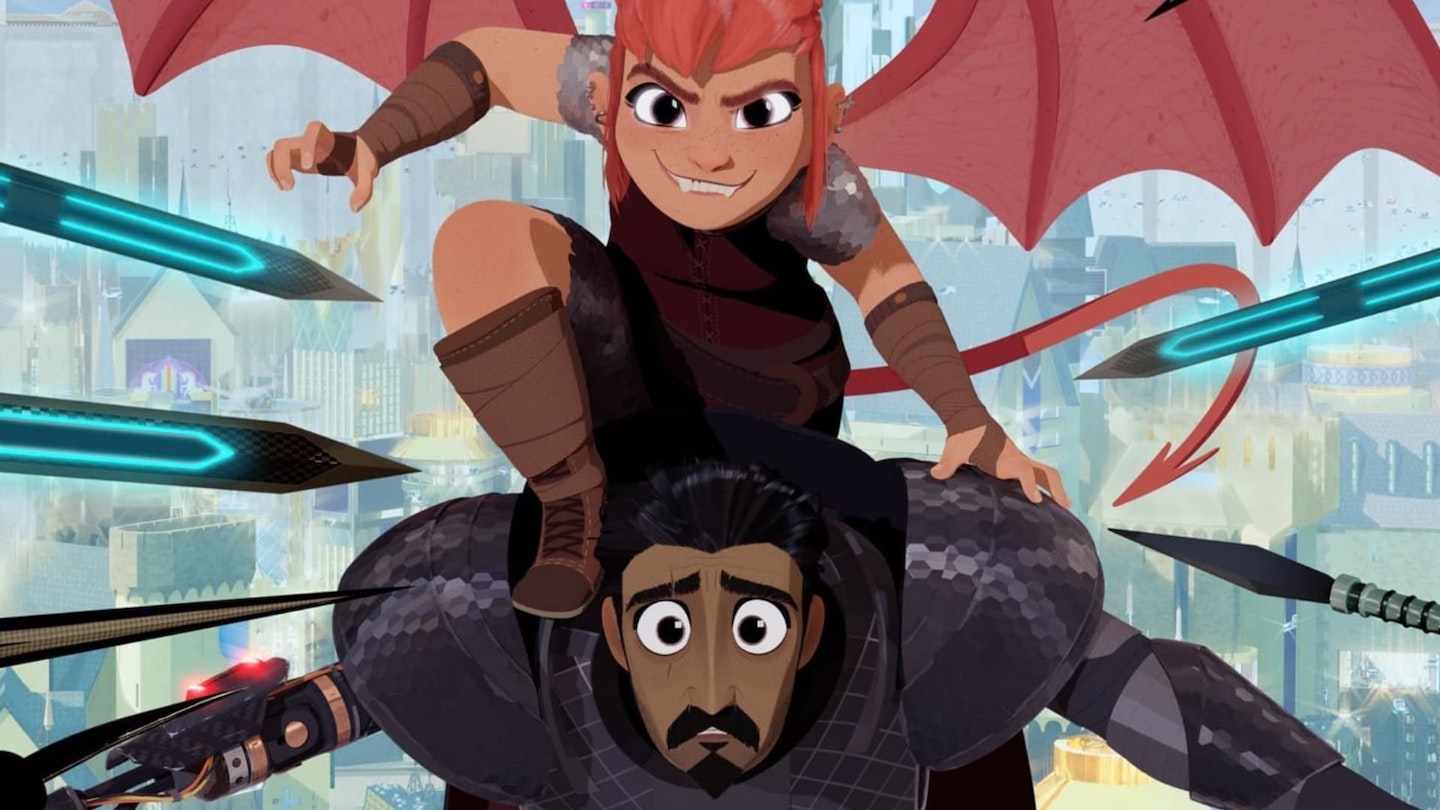
Having survived studio closures and cancellation before finally being resurrected by Netflix, the fact that Nimona exists at all is cause for celebration. That Nick Bruno and Troy Quane’s adaptation of ND Stevenson’s beloved graphic novel also happens to be a visually inventive, very witty, subversive and diverse animation that feels wholly original is a testament to the resilience and belief in the story shared by its makers. This revisionist fairytale stars Riz Ahmedand Chloë Grace Moretz as outlawed knight Ballister “Bal” Blackheart and shapeshifting agent of chaos Nimona, misunderstood malcontents who form an unlikely bond as they try to prove Bal’s innocence. Gorgeously rendered in eye-popping 2.5D animation, and increasingly bold in its narrative choices, Nimona’s is a story that refused to go unheard, and rightly so. TL;DR version - it’s all chaos, destruction, something-something-something. And we win.
Read the Empire review here.
Guillermo Del Toro’s Pinocchio (2022)

A long-gestating passion project for its eponymous maker, who lost both of the parents who inspired his love for this story before the film’s release, Guillermo del Toro’s Pinocchio departs from past tellings of Carlo Collodi’s classic tale to celebrate disobedience, confront fascism head-on, and greet death like an old friend. From the tragedy that befalls David Bradley’s Geppetto in the film’s Up-rivalling opening minutes, to cricket narrator Sebastian’s (Ewan McGregor) simply spoken closing words – “What happens happens, and then we’re gone” – del Toro takes us on the kind of darkly wonderful odyssey only the great Mexican fabulist could’ve helmed (there’s a reason his name’s in the title). This, his first animated feature, is a delicately hand-crafted, spellbinding affair – an all-singing, all-dancing, all-sobbing-by-the-end tale “of imperfect fathers, imperfect sons, love, and loss”. Pure poetry in (stop-)motion.
Read the Empire review here.
Fall (2022)
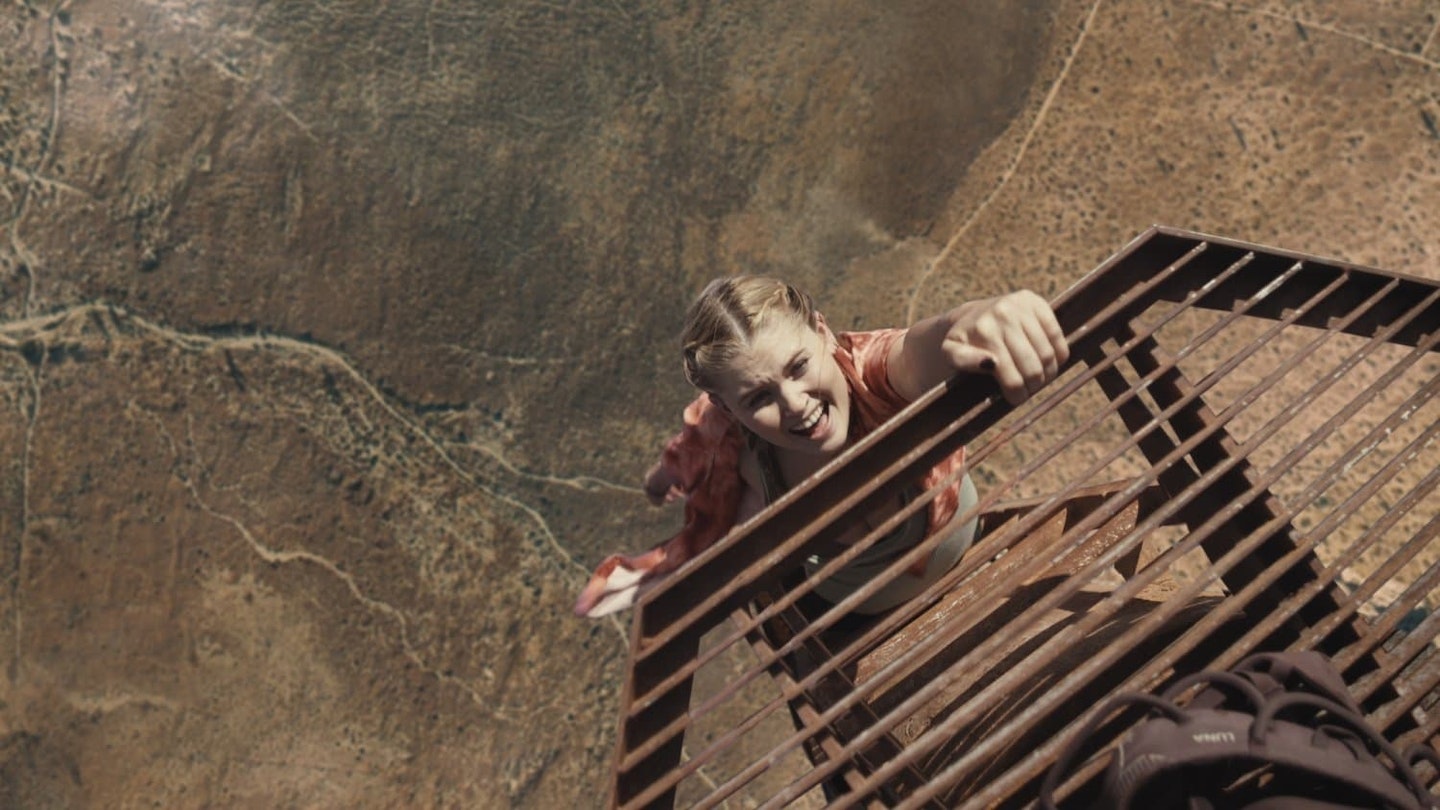
Scott Mann’s 2022 schlockbuster Fall follows in the great tradition of single word title does-what-it-says-on-the-tin thrillers like Buried, Frozen (not that one!), and Crawl by reeling you in with a simple hook - here, two trauma-stricken pals trapped up a 2,000ft TV tower - and then going to town on your nerves. And boy, oh boy, does this one succeed in leaving you a fraught wreck. As besties Becky (Grace Caroline Currey) and Shiloh (Virginia Gardner) make their ill-advised ascent, loose nuts, stray backpacks, lost signal, and even having a wee become scenes fraught with tension. And that’s before we even get to the vultures! Pairing spectacularly vertiginous camerawork with sweaty-palm inducing sound design and very ‘understood the assignment’ lead performances, this is a technically accomplished and ruthlessly efficient genre exercise.
Read the Empire review here.
The Unbearable Weight of Massive Talent (2022)
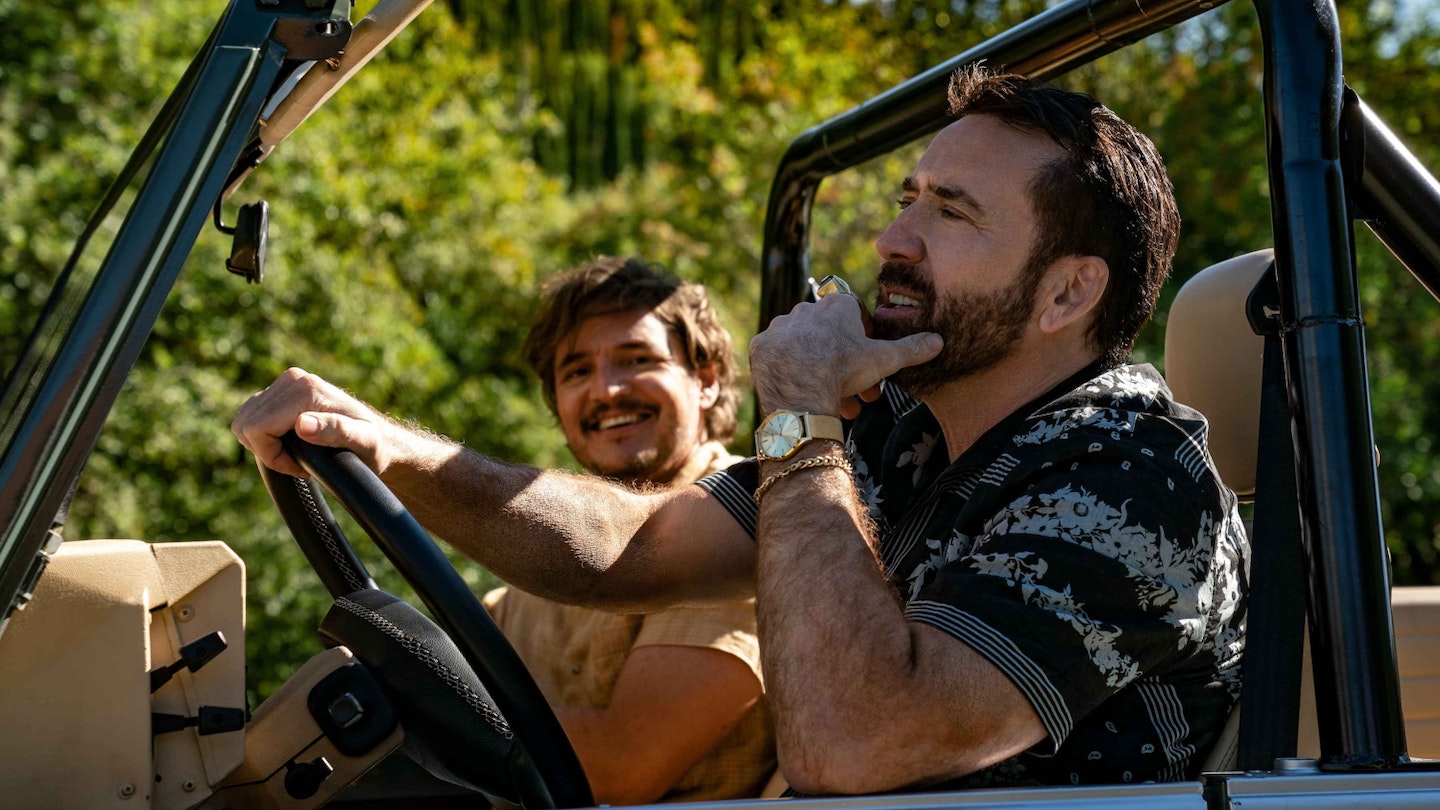
Tom Gormican’s The Unbearable Weight Of Massive Talent - a meta-comic love letter to nouveau shamanic thespian Nicolas Cage - is a doozy! Cage stars as a version of himself whose career’s on the skids and is contemplating retirement - but not before banking himself a cool $1 million for going to wealthy mega-fan Javi’s (Pedro Pascal) birthday party. Haunted by visions of his younger, _Wild At Hear_t-era self and embroiled in a kidnapping plot, a CIA investigation, and a bizarrely wholesome bromance with Pascal’s Paddington 2 loving superfan Javi, Cage fully cuts loose here - and the results are glorious! Packed to the gills with lovingly placed easter eggs and homages to Cage’s illustrious career (those ARE the golden guns from Face/Off, and that IS the Mandy chainsaw), Gormican has made a film every bit as unpredictable, unhinged, and unforgettable as the great man himself. Nick Cage is back! Not that he went anywhere…
Read the Empire review here.
Extraction 2 (2023)

Howard Hawks once said a great movie is “three great scenes and no bad ones”. Sam Hargrave’s Extraction 2, which sees Chris Hemsworth back in action as black market merc Tyler Rake after all but dying first time out, is a great movie. It’s so good in fact that it pretty much does all three great scenes in its breathless opening, which takes in an infernal prison escape, a forest-set car chase, and a helicopter-besieged train sequence all over the course of one of the craziest oners you’ll ever see. From there, the action rarely relents as Rake overcomes hell and high water to keep his ex-sister-in-law and her children safe. Packing bone-crunching foley work and some surprisingly emotional character beats, sold deftly by natural-born action man Hemsworth, this one’s a real action filmmaking tour de force.
Read the Empire review here.
Four Lions (2010)
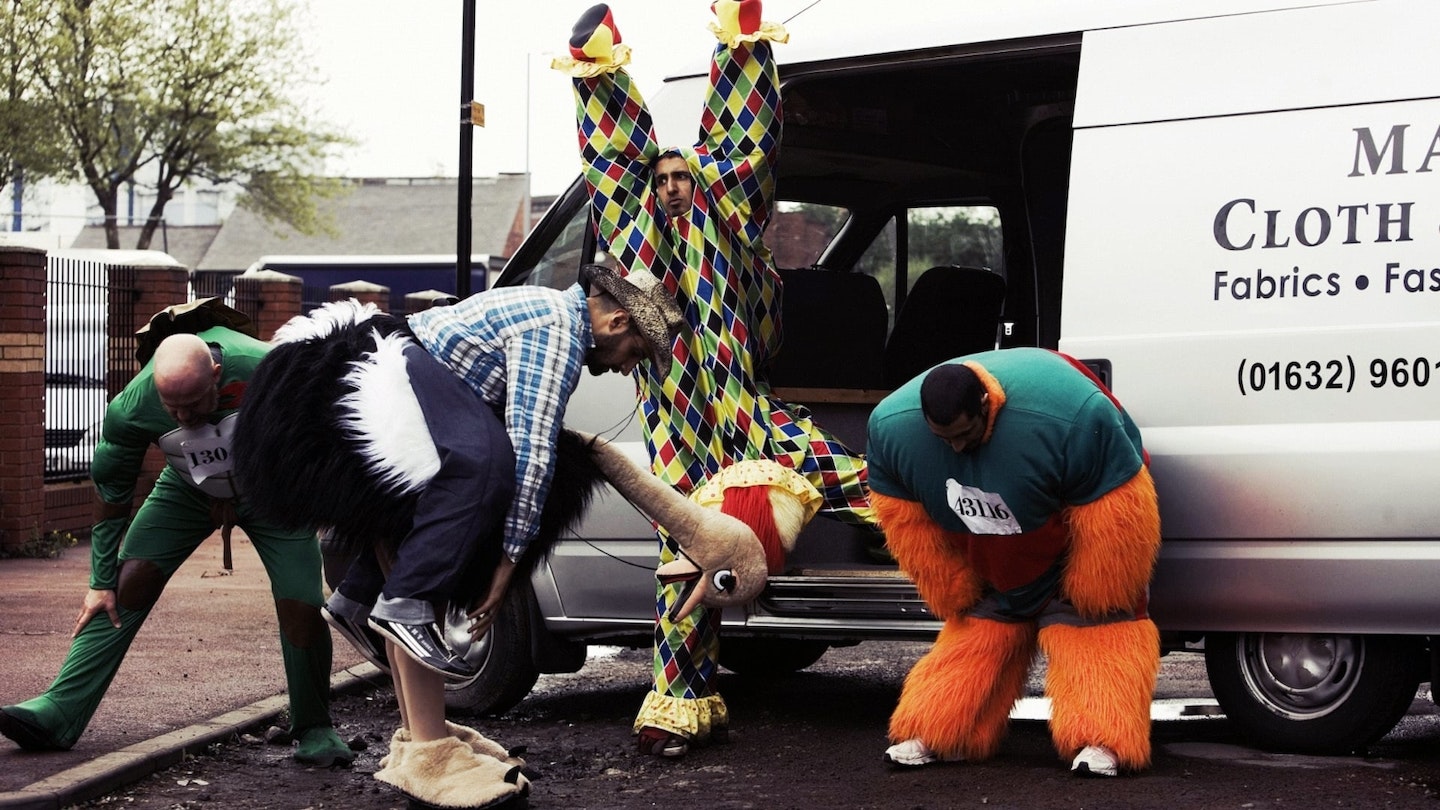
Co-written by none other than Succession supremo Jesse Armstrong, Four Lions is the first - and remains perhaps the only - suicide bomber comedy (why that sub-genre never took off we’ll never know!). In lesser hands, this could’ve been little more than a button-pushing bit of edgelord controversy courting. But, under the writing and direction of maverick satirist Chris Morris, the film - which sees Riz Ahmed, Kayvan Novak, Adeel Akhtar, and Nigel Lindsay bungling preparations for a bombing - instead poses a thought-provoking, oftentimes profoundly melancholic assessment of the lethal combination of peer pressure, pride, confusion and idiocy that makes martyrs of deeply misguided men. It just also happens to be very, very, very funny, proving that you can in fact joke about anything, so long as you do it well. Rubber dinghy rapids, bro!
Read the Empire review here.
Glass Onion: A Knives Out Mystery (2022)
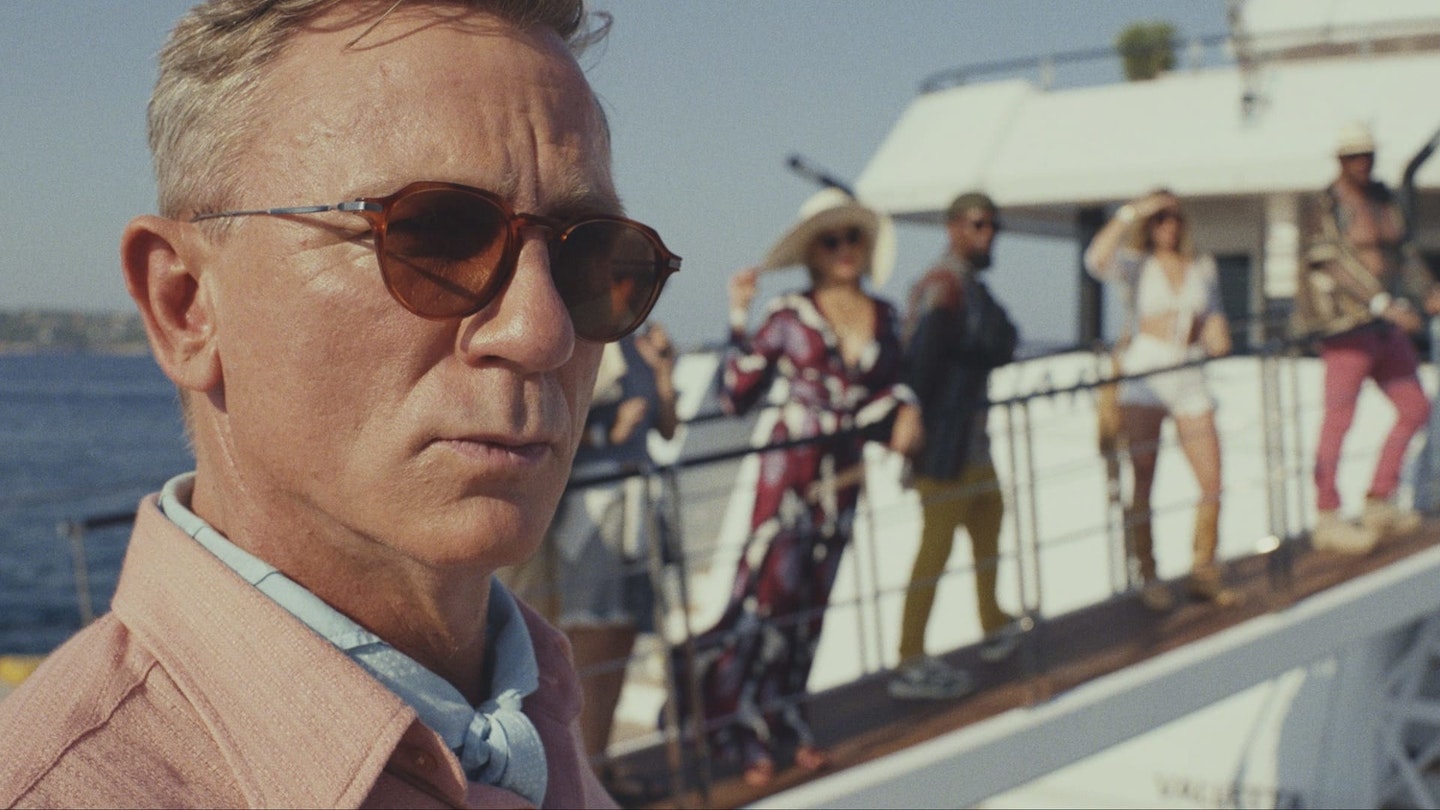
Ever since we first met Daniel Craig’s passive observer of the truth, Benoit Blanc, in 2019’s subversive sleutherKnives Out, we’ve been slightly obsessed with Rian Johnson’s Foghorn Leghorn-accented gentleman detective. That obsession ratcheted up several notches with last year’s follow-up Glass Onion, which makes Blanc an active player in the game as he sets out to catch a killer during a murder-mystery weekend on oddball billionaire Miles Bron’s (Edward Norton) private island. As gleefully self-aware as its predecessor and just as satirically sharp (no prizes for guessing who the tech billionaire buffoon with no people skills and a God complex could be), Johnson’s sequel adopts a bigger equals better philosophy and applies it perfectly. Among a starry ensemble - Dave Bautista! Kathryn Hahn! Kate Hudson! Hugh Grant! - special props have got to go to Janelle Monáe, whose standout performance as the enigmatic Andi Brand is as layered and eye-catching as the titular vitreous veggie.
Read the Empire review here.
The Strays (2023)
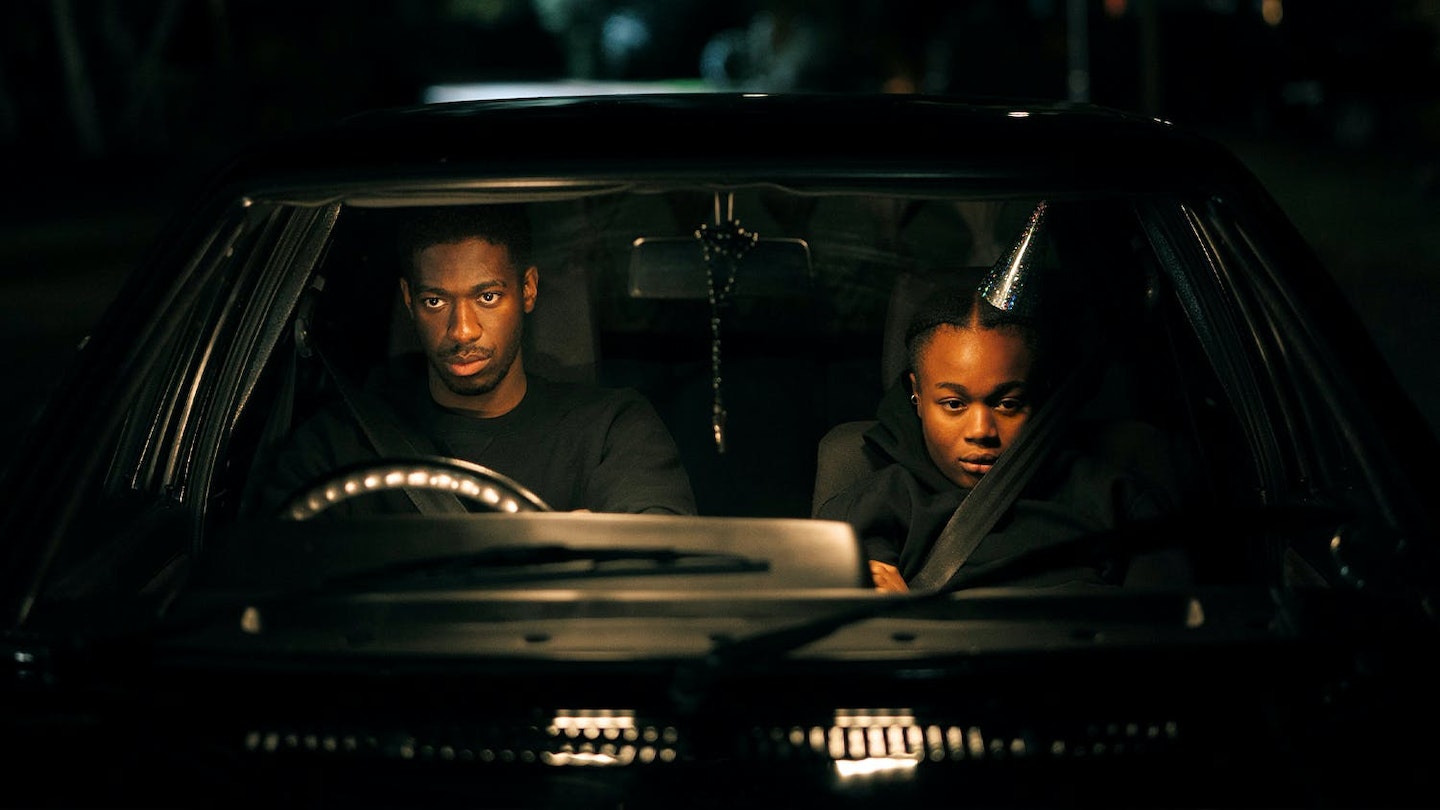
A film that shares as much DNA with recent British Netflix home invasion chillers I Came By and His House as its more obvious progenitor, Jordan Peele’s social horror Get Out, first-time writer-director Nathaniel Martello-White’s The Strays is nevertheless its own beast. Tackling difficult ideas surrounding social (im)mobility and internalised racism, the film introduces us to Cheryl (Ashley Madekwe - exceptional) as she leaves her family to start a new life. Years later, we see Cheryl’s reinvention as Neve, a trophy housewife in white suburbia whose illusion of assimilation is threatened by the arrival of two mysterious figures from her past (Bukky Bakray and Jorden Myrie). Despite some knotty plotting, fantastic lead performances help The Strays find its way before Martello-White delivers a jaw-slackening punchline of an ending that’ll leave you grinning and grimacing in equal measure.
Read the Empire review here.
The Sea Beast (2022)

After co-helming Disney’s Big Hero Six and Bolt, Chris Williams’ solo directorial debut The Sea Beast is a total breath of fresh air. A swashbuckling, seafaring animated adventure with shades of Moana and How To Train Your Dragon woven into its complex narrative tapestry, Williams’ film is as impressive for what it says about our world as for the stunningly, intricately animated way it says it. Karl Urbanis a hoot as legendary monster hunter Jacob Holland (think Guybrush Threepwood with muscles), who is joined by feisty, wide-eyed stowaway Maisie (Zaris Angel-Hator) on a monster hunt that soon has them questioning who the real monsters in their story truly are. The adorable wonder of creature design that is the titular beast Red will win your heart, but it’s Williams’ bold use of the form to confront man’s colonialist roots that will linger long in the mind.
Submarine (2010)
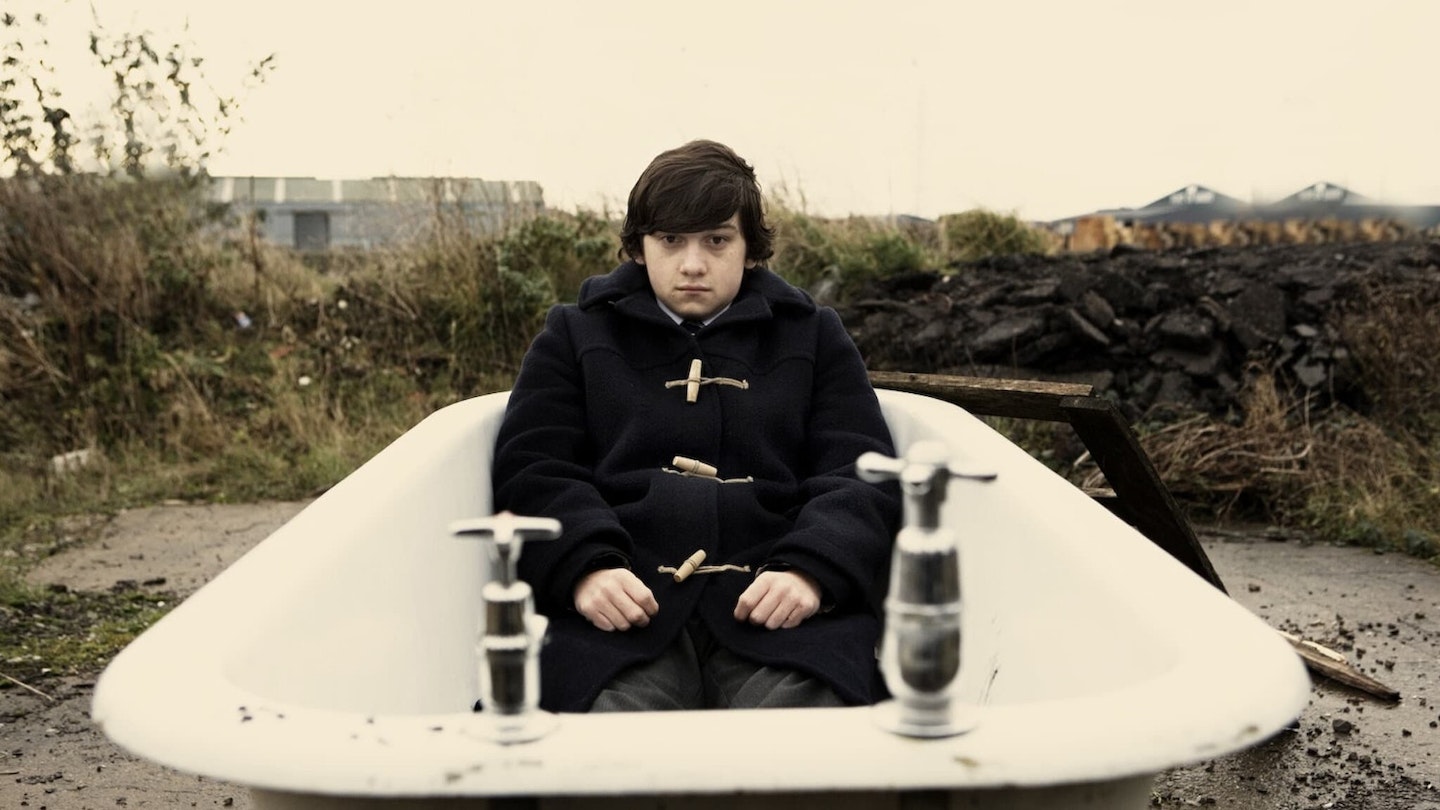
From the angsty Alex Turner soundtrack to the Wes Anderson aesthetic hat-tips and an inimitable vein of dry, subversive humour, Richard Ayoade’s Submarine is a hell of a directorial debut. Based on Joe Dunthorne’s off-kilter coming-of-age book, this cinematic adaptation sees Craig Roberts (Phantom Of The Open) step into the shoes of Oliver Tate, an awkward 15-year-old whose only dreams are to lose his virginity and stop his mum (Sally Hawkins) from cheating on his old man (Noah Taylor) with Paddy Considine. As a balloon static buzz builds between Oliver and the enigmatic Jordana (Yasmin Paige), Ayoade takes viewers on a singularly strange yet relentlessly charming journey through the growing pains of adolescence, the intensity of young love, and the realisation that everything eventually gets committed to the Super-8 footage of memory.
Read the Empire review here.
Spider-Man: Into The Spider-Verse (2018)
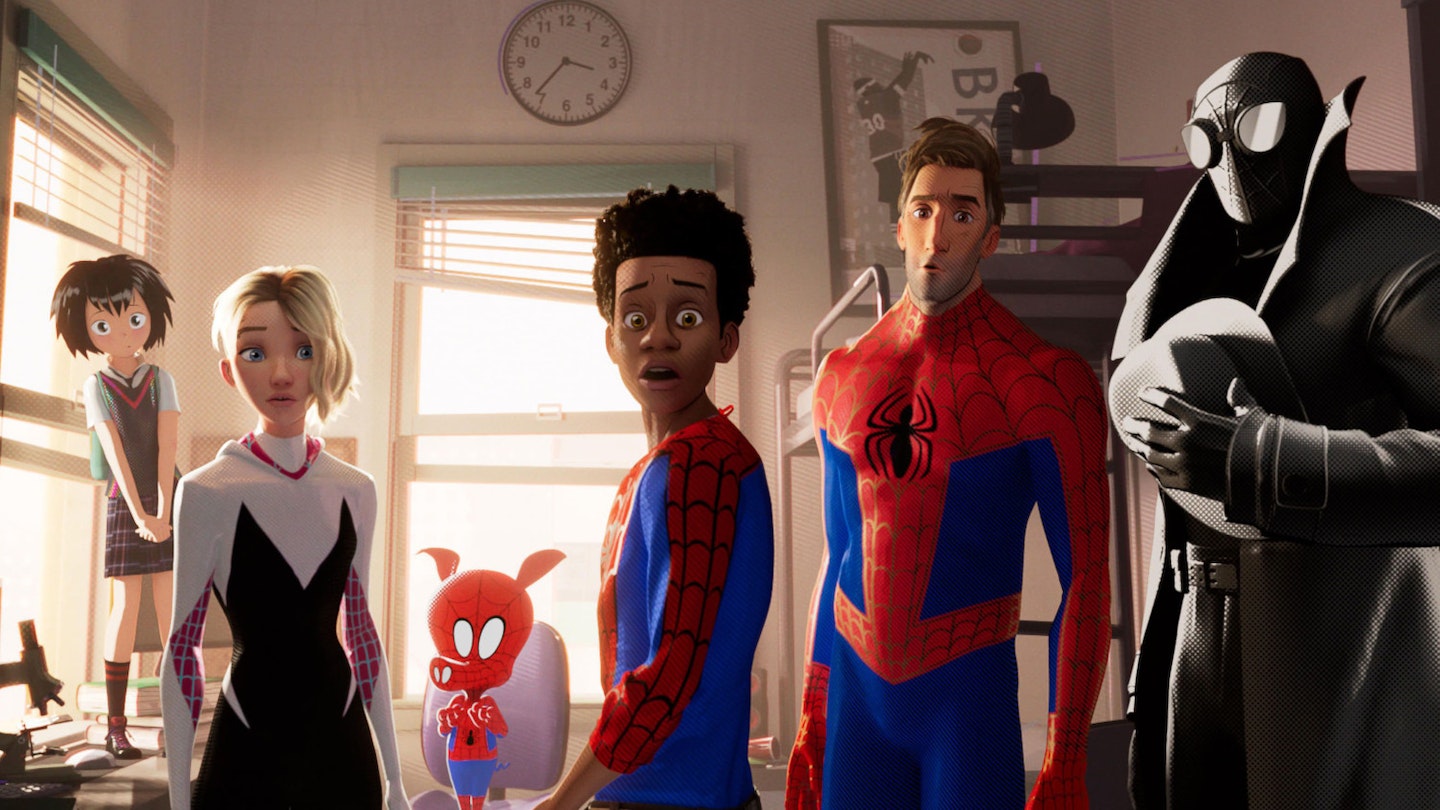
Web-slinging wonder Spider-Man: Into The Spider-Verse’s showstopping centrepiece sees Brooklyn teen Miles Morales (Shameik Moore), Spider-suited and Air Jordan booted, take a leap of faith. Glass shatters, the world turns upside down, and our hero ascends where others would fall. It’s not only a stunning scene in a film that marks animation’s biggest jump since Pixar sphered the circle with Toy Story, but a ripe metaphor for the movie itself. The Phil Lord and Christopher Miller production shatters the ceiling for the form with its gorgeous, Day dotted pop art blend of 2D and 3D animation, and in turning our understanding of superhero cinema on its head tells an emotionally rich, narratively daring coming of age story. By creating a multiverse where anyone can wear the mask, be they badass drumming ballerina, Nazi-punching Nicolas Cage, mech-wearing tween, slimy toon pig, or simply a kid trying their best, Into The Spider-Verse changed the game in animation forever.
Read the Empire review here.
They Cloned Tyrone (2023)
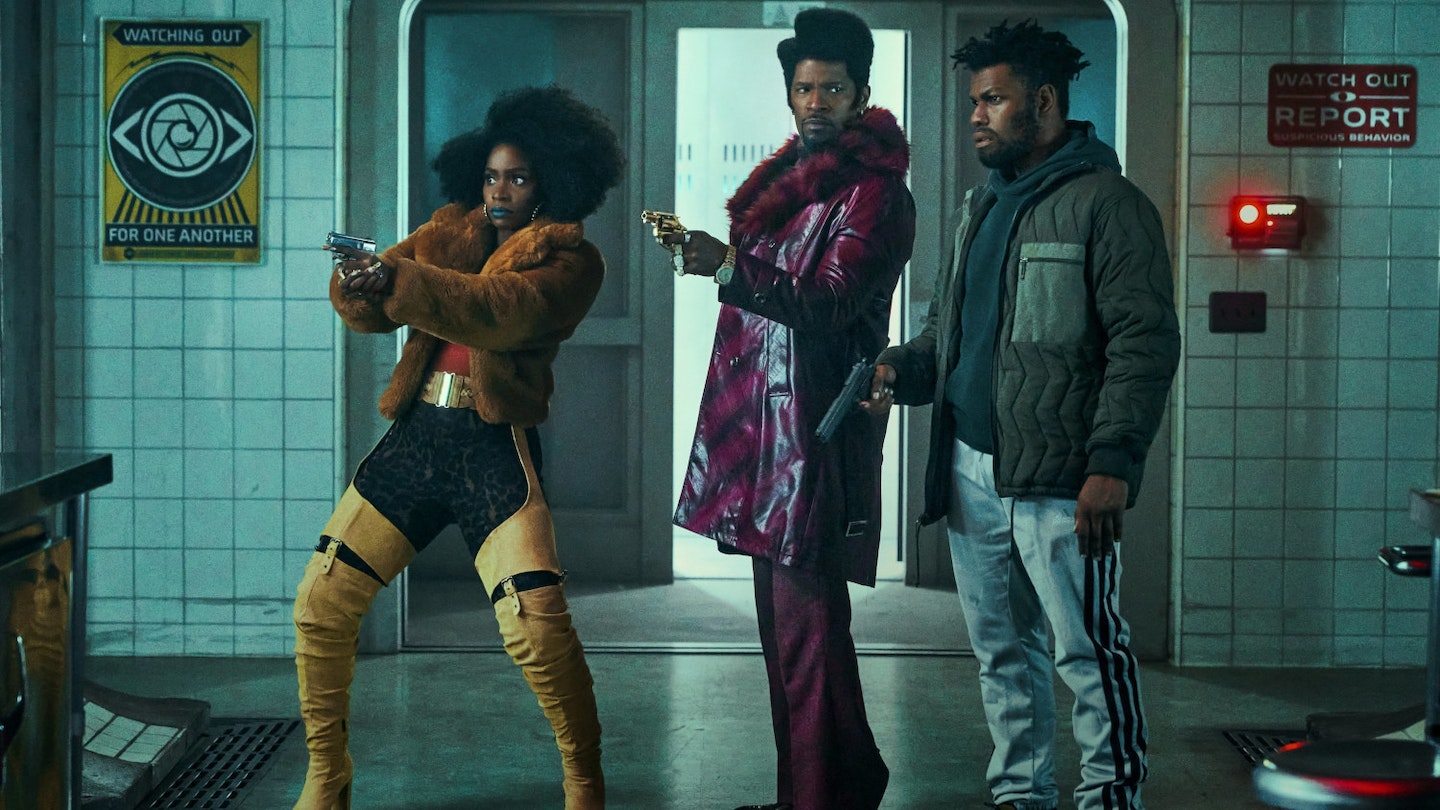
Call us crazy, but we’re pretty confident that They Cloned Tyrone is the best satirical Blaxploitation sci-fi mystery action thriller you’ll ever see. Juel Taylor’s directorial debut is an oodles-of-style, bags-of-substance joint that retrofits a cutting edge contemporary story of identity displacement and racial discrimination into a gleefully pulpy exploitation flick decked out in furs and set to the sounds of hip-hop, soul, and disco. Jamie Foxx, Teyonah Parris, and in particular a dynamite John Boyega shine as the wisecracking pimp, savvy sex-worker, and existentially anguished drug dealer respectively who pull back the curtain on their neighbourhood’s suspiciously seasoned chicken cottage of Oz. The jokes land, the gut punches punch the gut, and the politics and social commentary underpinning the whole thing are clear, righteous, and leave a smarting mark. Just remember, respect the cuticle!
Read the Empire review here.
The Harry Potter Series (2001-2011)

There isn’t a child (or indeed adult) alive who doesn’t know the name of Warner Bros. behemothic blockbuster series of Wizarding World adventures. The Harry Potter franchise, which follows Daniel Radcliffe’s eponymous lightning bolt scarred boy wizard and his pals’ adventures at Hogwarts School Of Witchcraft And Wizardry, is the perfect example of a page-to-screen adaptation done right. Helmed by four distinctive filmmakers, each of whom offer their own unique yet faithful take on this beloved universe over its eight chapters, to watch this franchise and its stars grow and evolve before our very eyes is… well… magical. Even after all this time? Always.
Read our ranking of all the Harry Potter (and Fantastic Beasts) movies here.
How To Blow Up A Pipeline (2023)

As the world’s climate crisis rages on, Daniel Goldhaber’s urgent eco-thriller How To Blow Up A Pipeline - adapted from Andreas Malm’s same-named non-fiction book - swerves sermonising and political point-scoring to remind us that actions speak louder than words. Here, said action comes in the shape of a gang, led by the righteously indignant Xochitl (Ariela Barer, also co-writer), setting out to sabotage a Texan oil pipeline. Telling the deeply personal stories of what drove our young heroes to activism while capturing their explosive endeavours on intense 16mm film, Goldhaber manages to concoct a call for revolutionary change that balances a globalist sense of urgency with a steadfast commitment to personal, intimate storytelling. It’s a bit like Uncut Gems for anyone who finds the realisation that unyielding capitalist expansion is shepherding us all towards an irreversible environmental apocalypse a bit terrifying.
Read the Empire review here.
Uncut Gems (2020)
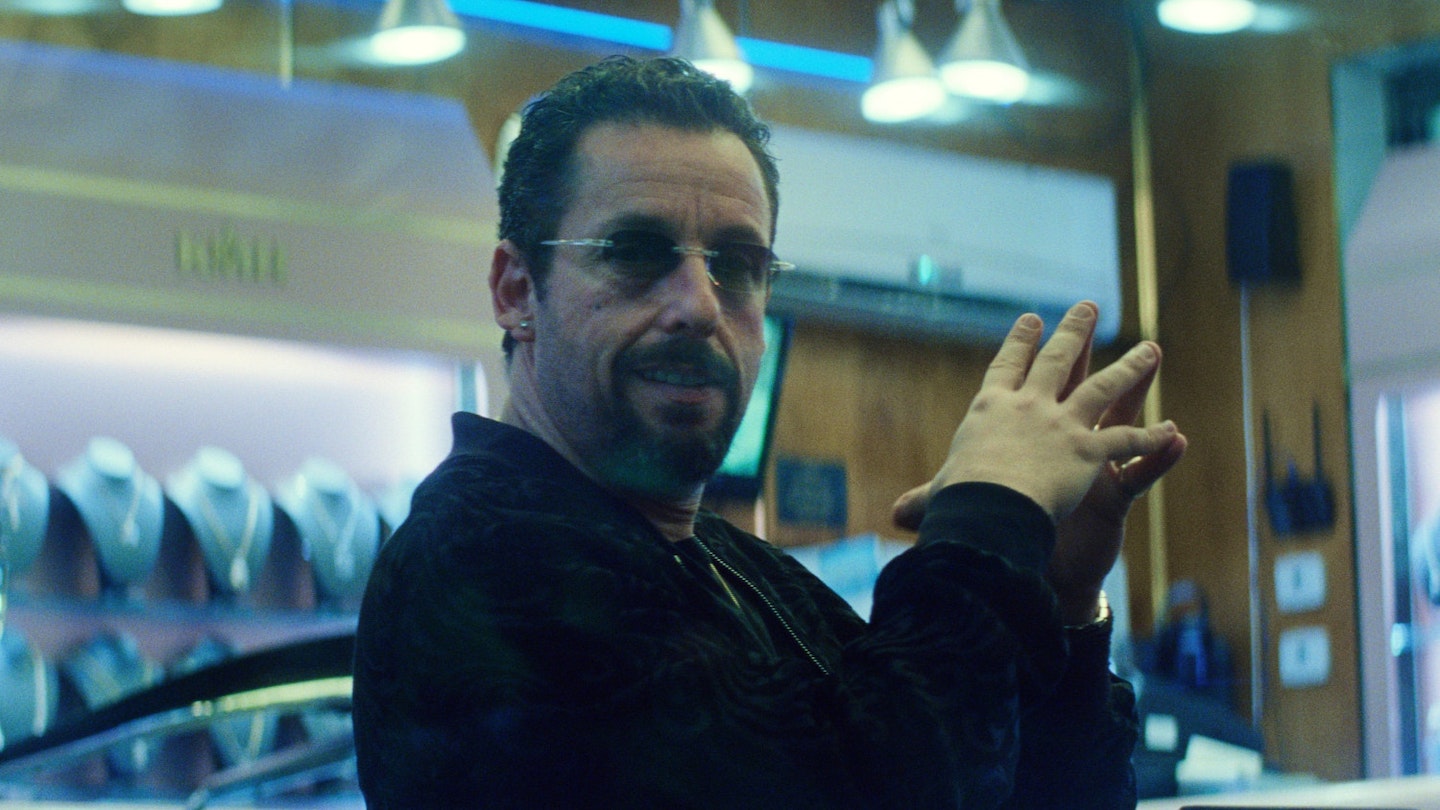
The first 10 minutes of Uncut Gems is one of the wildest openings to a movie you'll ever see. To spell it out would be to spoil it, but it's a none-more-head-spinning way in to this palpitation-inducingly stressful thriller. Filmmaking duo the Safdie Brothers are on killer form with the story of jeweller Howard Ratner (a never-better Adam Sandler) who is in a constant world of trouble – always one big score away from safety, and one terrible decision away from catastrophe. Uncut Gems is a two-plus-hour shakedown, as Ratner tries to stop his world falling apart. You'll thrill at his near-misses, shout out loud at his dire judgment, and find yourself rooting for him nonetheless. Small-scale but utterly pulse-pounding.
Read the Empire review here.
Jaws (1975)
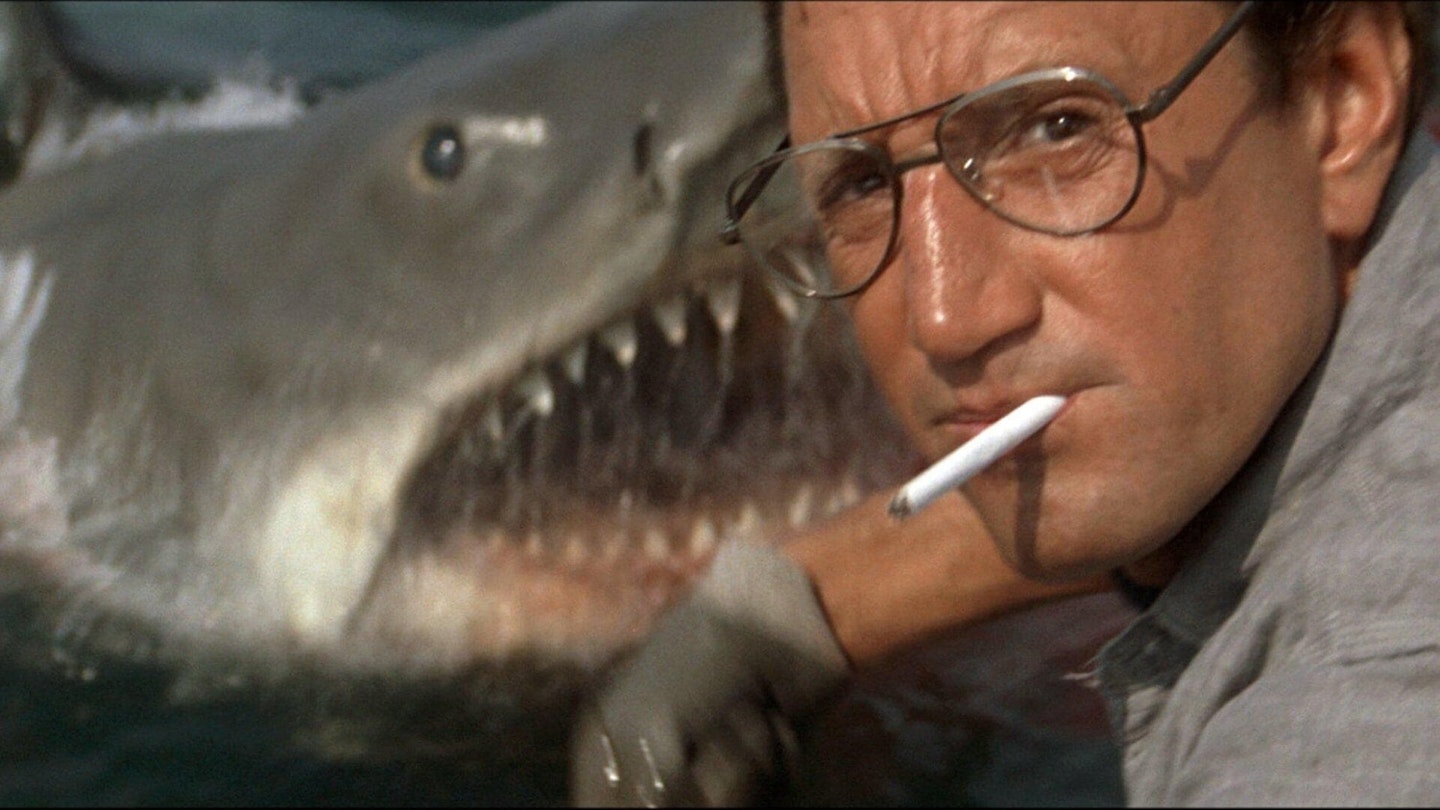
The original summer blockbuster still has serious teeth. Back in '75, Steven Spielbergunleashed his mighty shark thriller on an unsuspecting world – teaching generations of swimmers to be afraid of the water. If the shark animatronic is a tad clumsy, the filmmaking of Jaws remains ultra-sharp, as does the impeccable script and trio of stellar performances. Roy Scheider is utterly believable as police chief Brody, suddenly out of his depth when shark attack victims start washing up – while Richard Dreyfuss and Robert Shaw are brilliantly bickersome as marine expert Hooper and salty seadog Quint, forced to co-operate in order to bring the great white down. From the ultra-famous dolly zoom, to the head-in-the-boat jump scare, to that final line, it remains a masterpiece.
Read the Empire review here.
My Neighbour Totoro (1988)

Hayao Miyazaki's beloved animation couldn't be gentler – it's an utterly charming ode to childhood and the natural beauty of rural Japan. Packed with cute creatures and gorgeous, lush-green visuals (the big grey Totoro forest spirit looks ludicrously huggable), My Neighbour Totoro is a film almost entirely without conflict, a steady stream of joy, wonder and serenity to ease any troubled mind. All darkness – the mother of central sisters Satsuki and Mei, recently relocated to an old house in the countryside, is in hospital throughout the film – exists firmly on the fringes, and the effect of this creative choice is sheer bliss. Whether you're discovering the films of Studio Ghibli for the first time on Netflix, or preparing for Miyazaki’s final bow with the upcoming The Boy & The Heron, you’ll never go wrong with Totoro.
Read the Empire review here.
The Harder They Fall (2021)
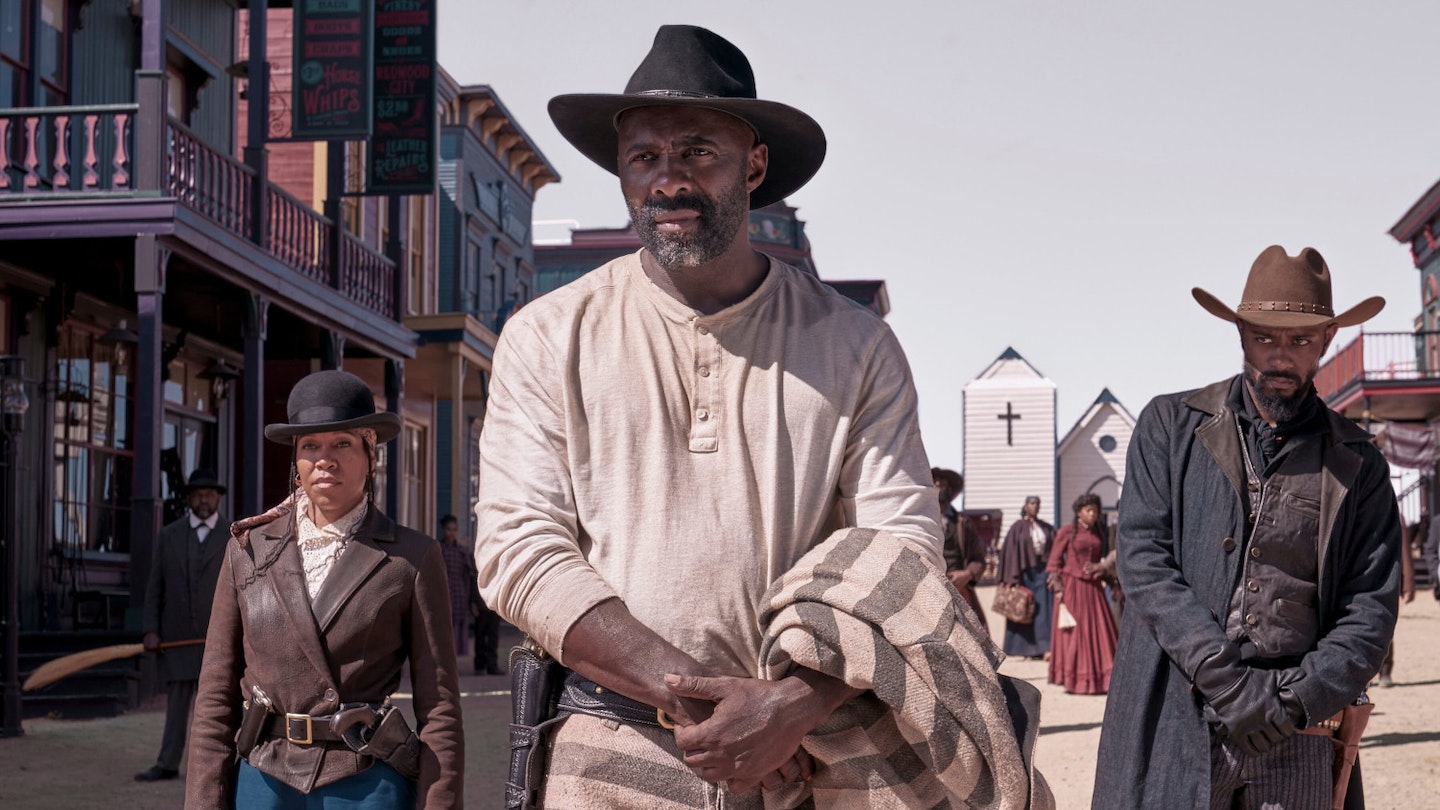
If the Western has largely been the domain of grizzled white men both in front of and behind the camera, The Harder They Fall is a flip, fun, flashy corrective. Building on his previous work (his debut album They Die By Dawn & Other Short Stories), director Jeymes 'The Bullitts' Samuel (brother of Seal) puts pistols firmly in the hands of under-represented groups rarely featured in cowboy classics and lets rip. And that cast... it redefines stacked, with Idris Elba, Jonathan Majors, Zazie Beetz, LaKeith Stanfield and Regina King all present and outstanding.
Read the Empire review here.
The Fear Street Trilogy (2021)
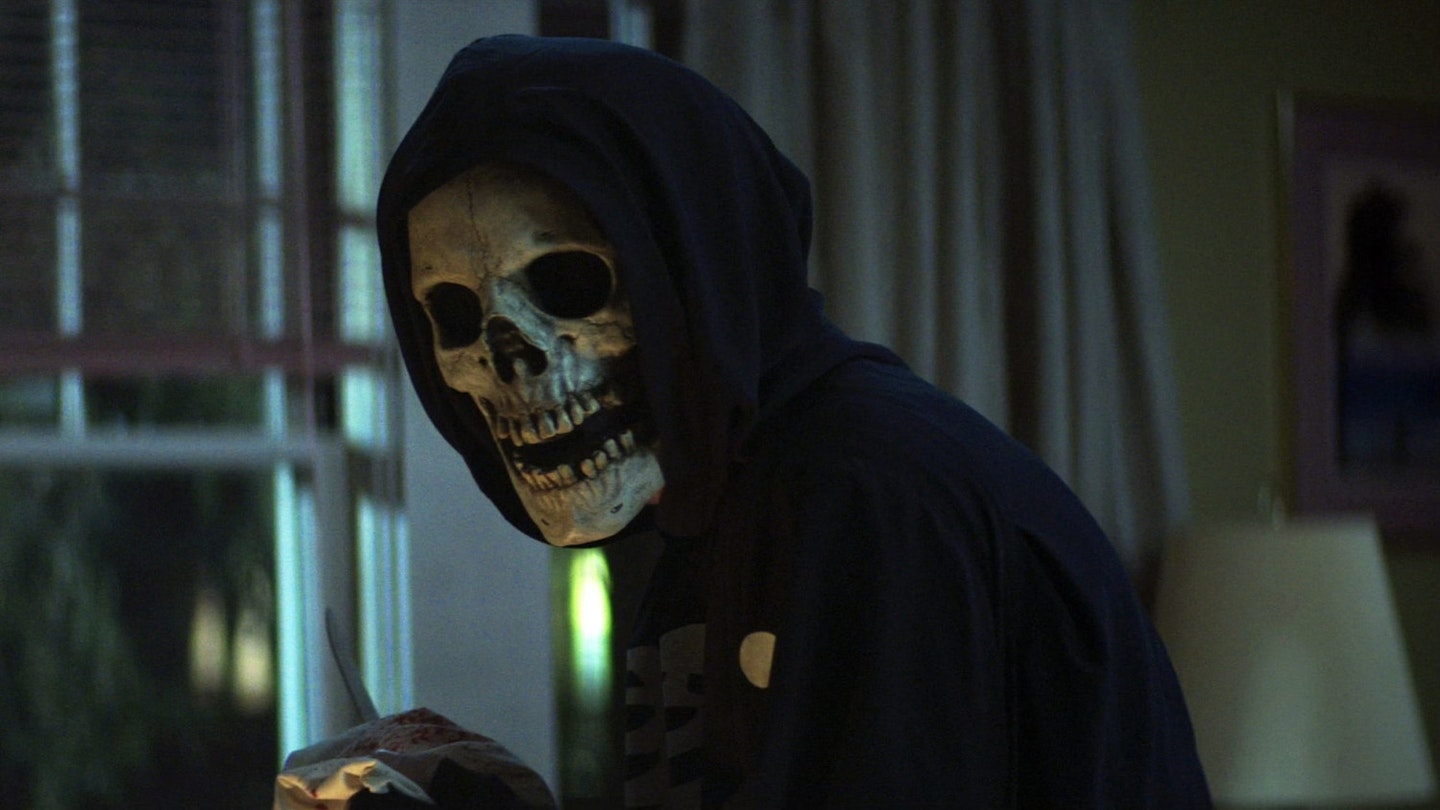
The Fear Street trilogy is one of the coolest horror experiments in years. Across the summer of 2021, director Leigh Janiak dropped three brand new scary movies on Netflix, each arriving a week apart with their own distinct look and feel, but telling an interconnected story spanning hundreds of years. Part One: 1994 pays significant homage to Scream and establishes the rival towns of Shadyside (where townsfolk regularly go murder-happy for no apparent reason) and Sunnyvale (where people, er, don't) as a playground for serial killers. Part Two: 1978 goes full Camp Crystal Lake as the bodies pile up at a summer camp. And Part Three: 1666 delivers a witch-hunt horror full of secrets. All in, it's a slick, smart, funny treat – and whilst primarily playing with teen characters, it goes hard on the gore for a well-earned 18 rating. Set three nights aside, and begin your binge now.
Annihilation (2018)
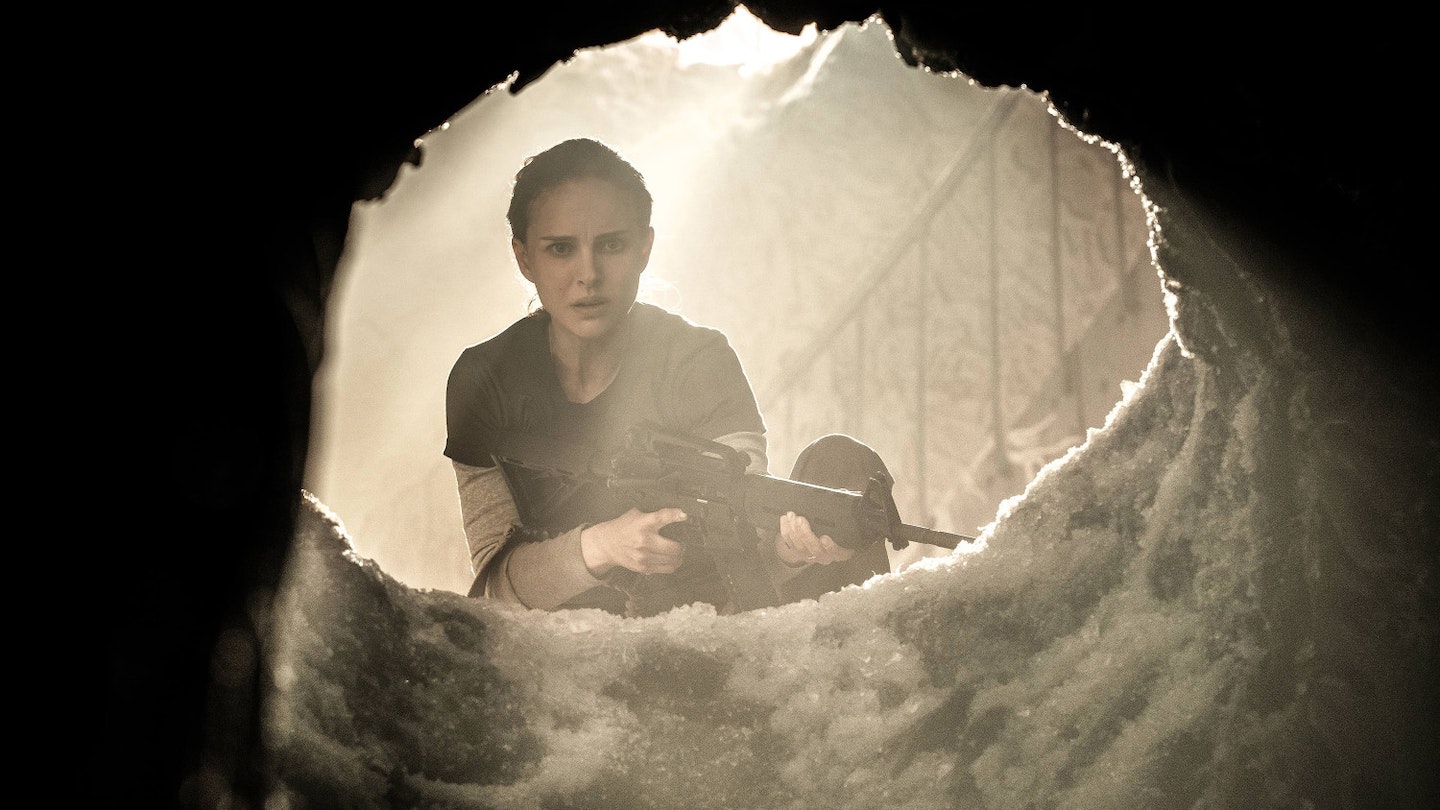
Alex Garland followed up the excellent Ex Machina with this similarly smart sci-fi brimming with beautiful visuals and compelling questions. Natalie Portman's Lena joins an expedition into 'The Shimmer', a mysterious 'infected' zone on the American coast where her husband and his troops went missing on a mission. A very loose adaptation of Jeff Vandermeer's extraordinary novel, Garland's film nods to genre classics but feels striking and original, boasting an elliptical final half hour that's bound to be talked about for decades to come.
Read the Empire review here.
Cam (2018)

Partially inspired by screenwriter Isa Mazzei's own experiences working in the bizarro corners of the online sex industry, Cam is a Blumhouse horror thriller focusing on "cam girl" Alice Ackerman (The Handmaid's Tale's Madeline Brewer). Going by the model moniker of Lola, Alice makes a modest living catering to the fetishes of her viewers (and, more disturbingly, staging the occasional spectacular fake suicide – a deftly sketched subtext is that of the internet's desire to see violence against women). But then, weirdly, Lola starts broadcasting when Alice isn't online. It's a creepy mystery, but what impresses most is its matter-of-fact and non-judgmental depiction of its unusual world, and the fully fleshed-out character of Alice herself. One of the best horror films of 2018.
Inglourious Basterds (2009)
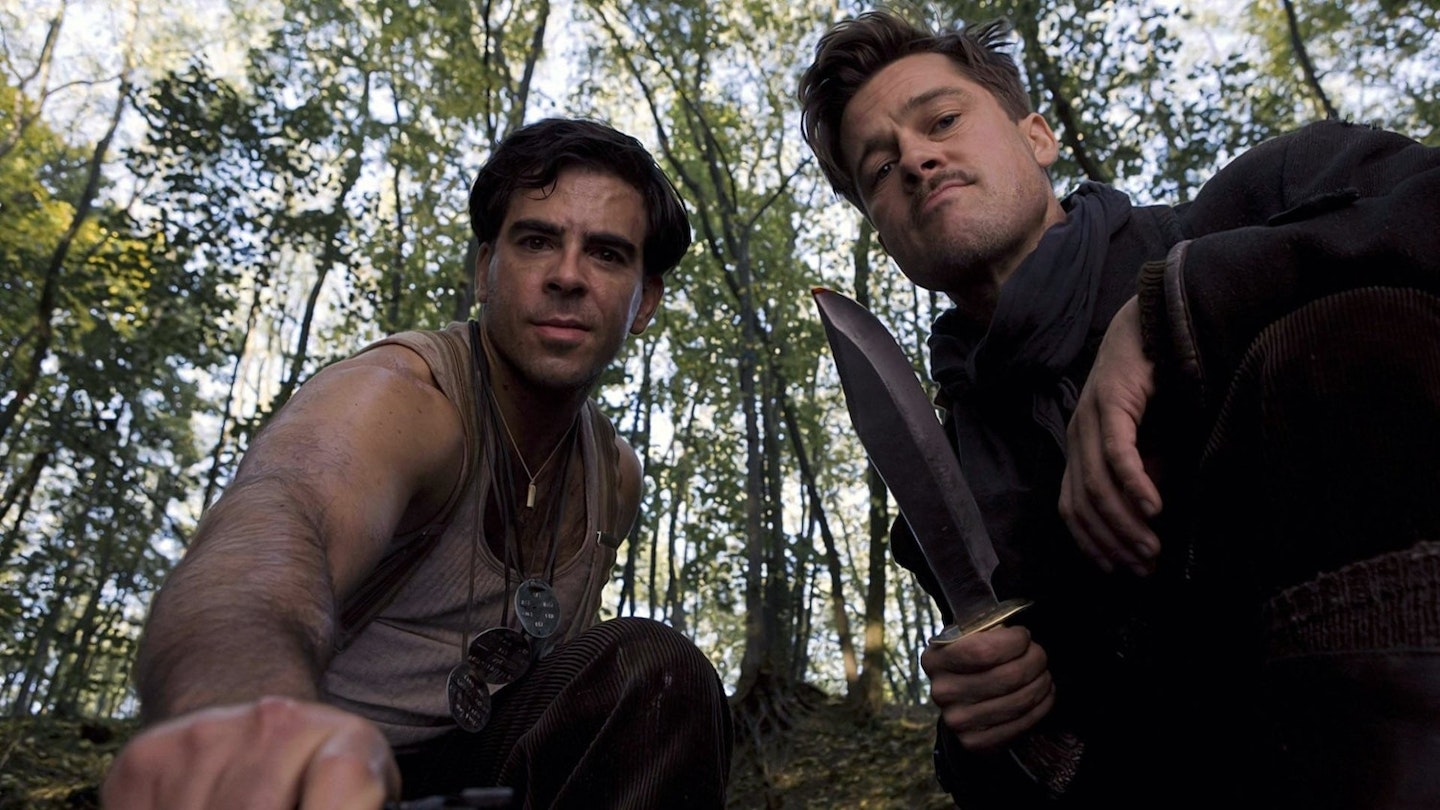
Sure, Quentin Tarantino's opening gambit of Reservoir Dogs and Pulp Fiction is pretty much insurmountable – but Inglourious Basterds deserves to go down as one of his greatest achievements. His history-altering World War II epic is jam-packed with iconic characters, nerve-shredding setpieces, and all-out filmic nerdery, as a troop of Jewish soldiers and French cineastes lay waste to the Nazis. The titular Basterds – led by Brad Pitt's southern-drawling Aldo Raine – are absent for much of the runtime, meaning Mélanie Laurent's Shosanna is the the real lead, escaping an opening massacre by Christoph Waltz's terrifying SS officer Hans Landa (an all-time-great Tarantino character) before plotting her revenge against Hitler's regime. The results are brash, poignant, squirmingly tense, funny, and irreverent, all set to a killer soundtrack – a Tarantino movie, in other words.
Read the Empire review here.
Da 5 Bloods (2020)
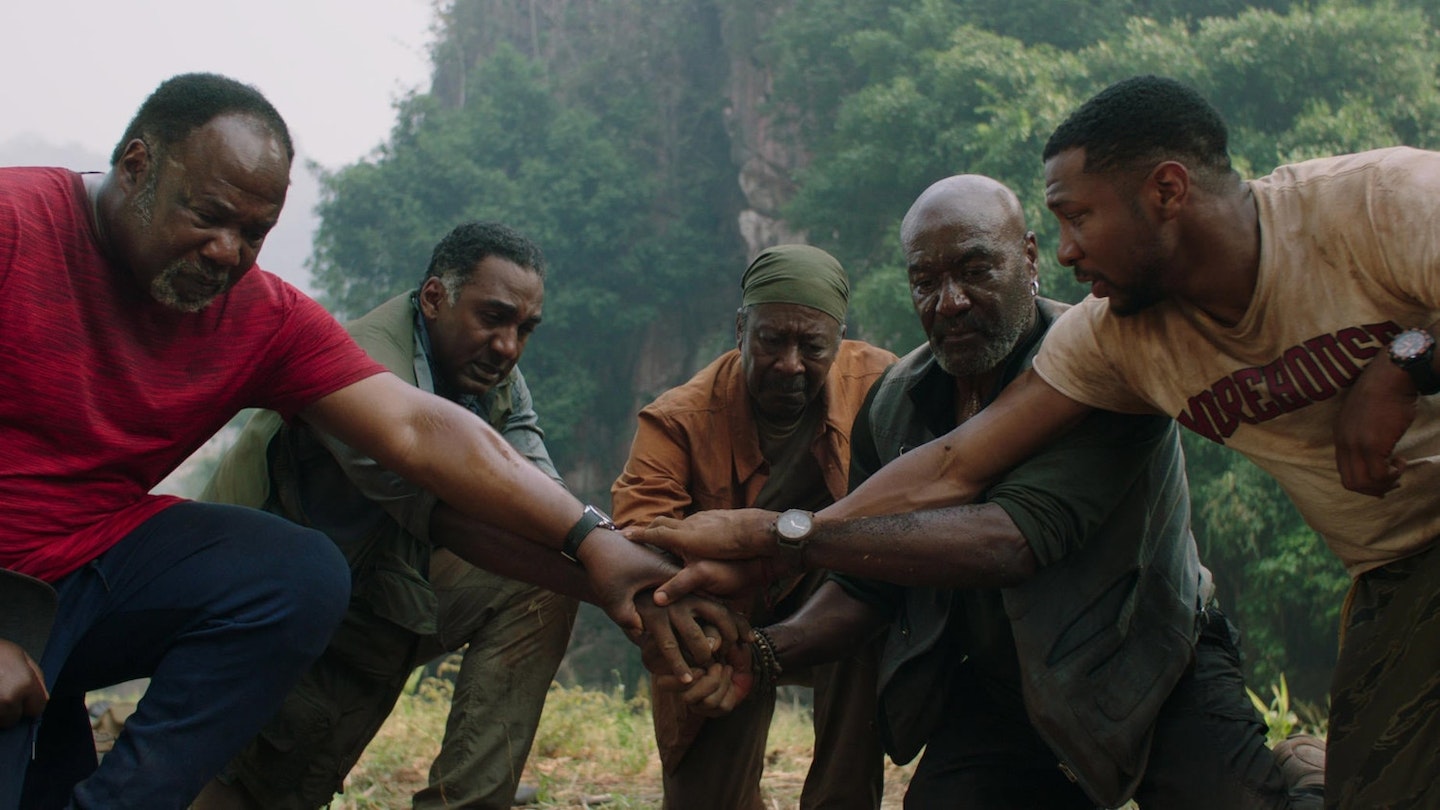
Spike Lee followed up BlacKkKlansman with another film that blends a pulpy adventure story with a righteous anger about the African-American experience. Here, it's looking at the role that Black American soldiers played in the Vietnam war, how that intersects with forces of Capitalism, and how its legacy plays out in future generations today. Delroy Lindo, Clarke Peters, Norm Lewis and Isaiah Whitlock Jr. play four Vietnam veterans returning to Ho Chi Minh City in order to recover a cache of hidden gold, and find the body of their fallen leader Stormin' Norman, played by Chadwick Boseman in one of his final performances, who died in the field. The result is part buddy film, part Shakespearean tragedy, part war movie, part history lesson – sprawling and captivating, with stellar performances all round, especially from Lindo's MAGA hat-wearing Paul.
Read the Empire review here.
The Irishman (2019)

Netflix's most high-profile original movie is a stellar coup – reuniting legendary filmmaker Martin Scorsese with Robert De Niro, Joe Pesci and Harvey Keitel for another gangster epic. If that's not enough, The Irishman also marked the first time Scorsese worked with Al Pacino. In short, it's mobster heaven – or, mobster purgatory, as De Niro's aged hitman Frank 'The Irishman' Sheeran reflects on his life of violence as he approaches the grave. Think Goodfellas meets Silence – a 210-minute late-career masterpiece that more than deserves your time.
Read the Empire review here.
The Mitchells Vs The Machines (2021)
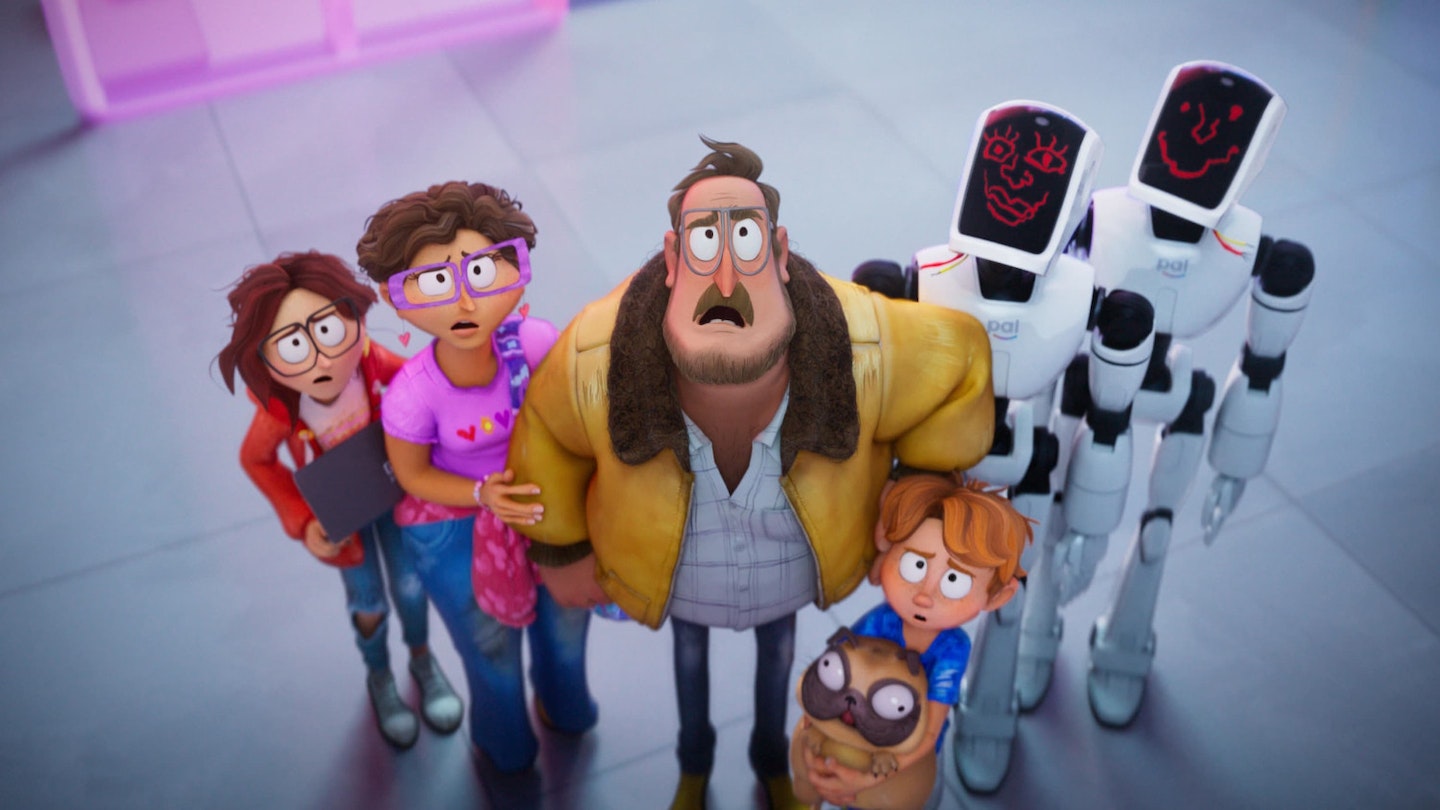
Even the bonkers trailer for The Mitchells Vs. The Machines didn't completely sell how crazy and wonderful this animated adventure turned out to be. Featuring a similarly frenetic, switching-styles technique to the Spider-Verse films (both those and this are produced by Phil Lord and Christopher Miller), the visual pizazz is matched by a massive heart and the ability to turn a story of family bonding in the midst of a robot apocalypse into something fresh. Just try not to crack up at the marauding Furby sequence. LET THE DARK HARVEST BEGIN!
Read the Empire review here.
Princess Mononoke (1997)

On the darker end of Studio Ghibli's output lies its all-out epic Princess Mononoke, a medieval fantasy saga bursting with imagination, rooted in Japanese folklore, and boasting astonishing visuals imbued with that rarified Ghibli magic. There's little cutesiness here – instead it's all ancient curses, eerie forest gods, and the encroach of war as a human mining colony battles with supernatural spirits as it engulfs natural resources. Like all of Hayao Miyazaki's work, Princess Mononoke's morality isn't black-and-white – seeing value in humanity and the natural world living side-by-side rather than a more binary good-evil dynamic. It's a stunning piece of work, and the very good English-language dub was adapted by none other than Neil Gaiman.
Read the Empire review here.
Ma Rainey’s Black Bottom (2020)
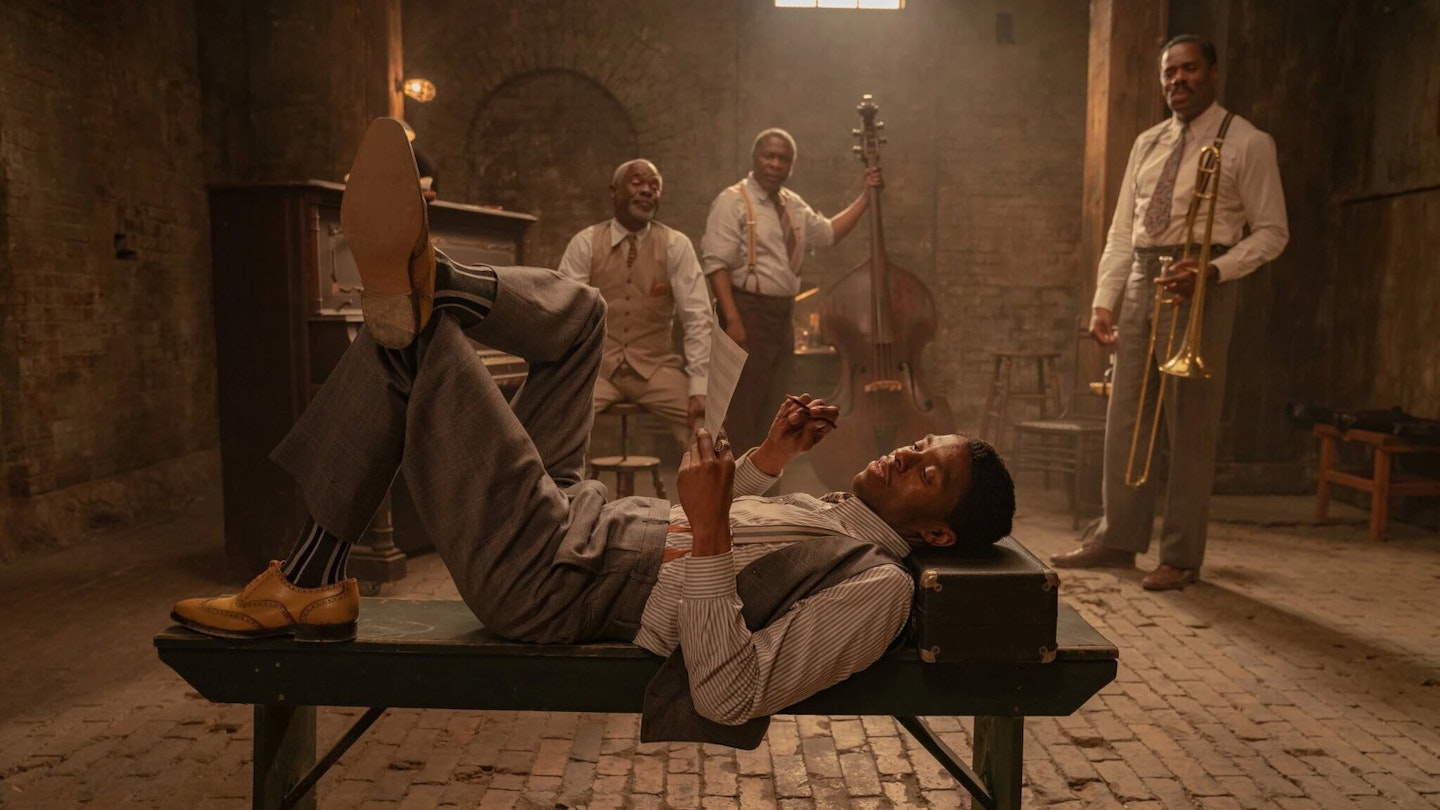
Based on August Wilson's play of the same name, George C. Wolfe's simmering drama of blues, cultural exploitation and Black artistry dials up the tension and incisive power across its 94-minute runtime. Viola Davis is exceptional as the titular Ma Rainey, playing the real-life 'Mother Of The Blues' as she assembles her band for a recording session in 1927 Chicago – unrelenting in her demands from the studio, and aware exactly of her real value within a system intent on reducing it. But it's Chadwick Boseman who steals the show as trumpeter Levee, whose burgeoning talent and ambition for his own musical career pushes him towards tragedy. It's a powerhouse performance of an iconic character, sure to garner awards attention – but it cuts deep as Boseman's final film role, released a few short months after his death in August 2020. Ma Rainey's Black Bottom makes it all too clear how much his presence on our screens will be missed.
Read the Empire review here.
Marriage Story (2019)
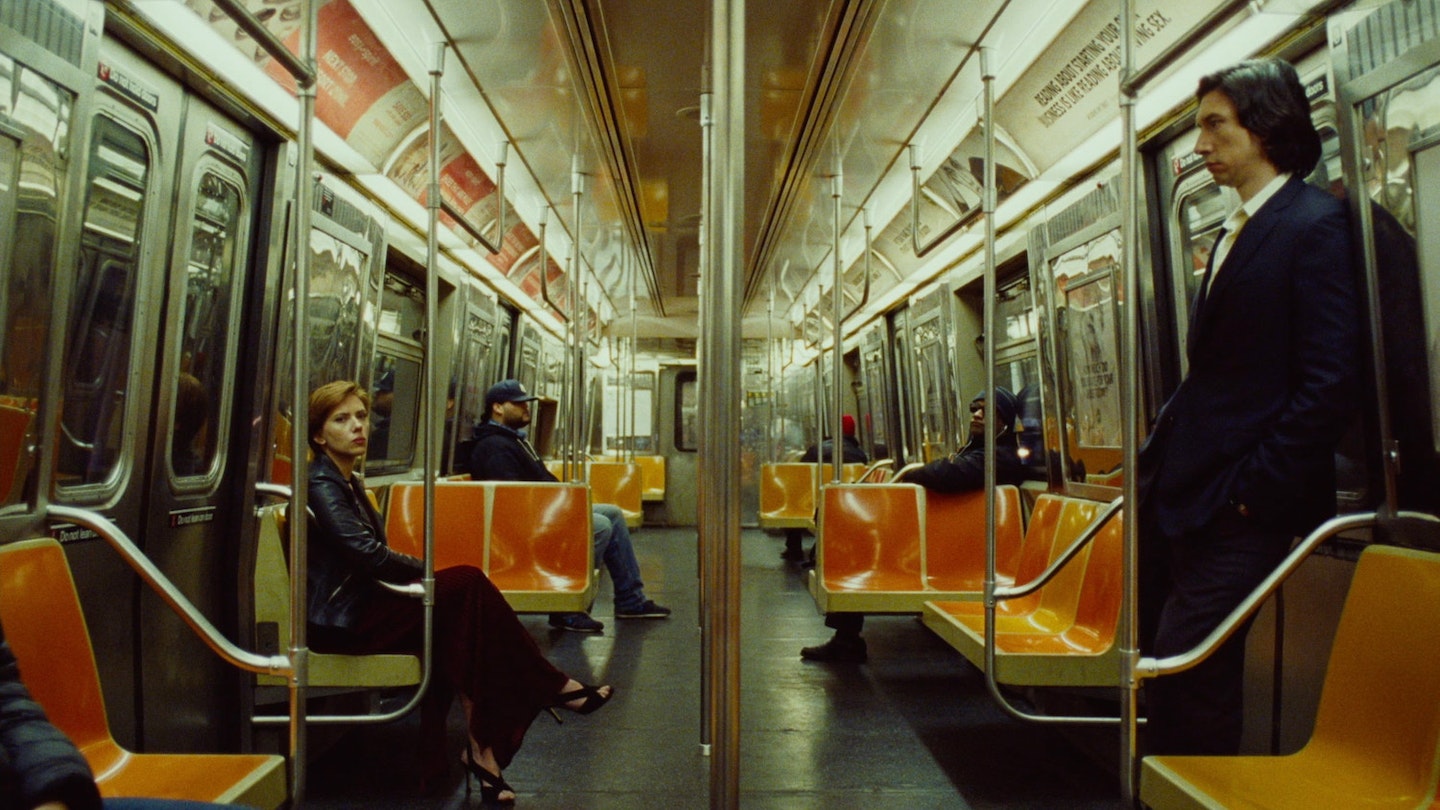
How many divorce movies can claim to be as love-fuelled as Marriage Story? There's an understandable level of pain to be found in Noah Baumbach's Netflix movie, but also a surprising amount of comedy and lightness to balance it out, as Scarlett Johansson's Nicole and Adam Driver's Charlie navigate the breakdown of their relationship. It's a screwball-tinged fallout that only makes the sadness hit harder, the heartbreaking central performances bolstered by supporting performances by Laura Dern andRay Liotta – the two lawyers orchestrating the divorce. An empathetic portrait of a split that avoids taking sides.
Read the Empire review here.
Atlantics (2019)

French director Mati Diop's genre-defying first feature Atlantics is about the migrant crisis and the shaping influence of first love. What begins as a slice of social realism morphs into a crime mystery and ends up as a story of supernatural justice. She pulls off shifts from social realism to genre mysticism with a poise as supernatural as the force that overtakes her young lovers.
Read the Empire review here.
Roma (2018)

Alfonso Cuarón's beautifully human drama may be shot in black and white, but it's a vibrant and evocative work brimming with heart and emotion. A partial paean to the director's own childhood, Roma follows the housekeeper of a middle-class Mexican family through a tumultuous year in the early 70s, depicting the moments both big and small that change and define lives. With stunning cinematography from Cuarón himself, and a compelling, soulful performance from Yalitza Aparicio, it ranks highly among the director's own impeccable output – and could be a frontrunner at the 2019 Oscars. Stick it right to the top of your watchlist.
Read the Empire review here.
12 Years A Slave (2012)
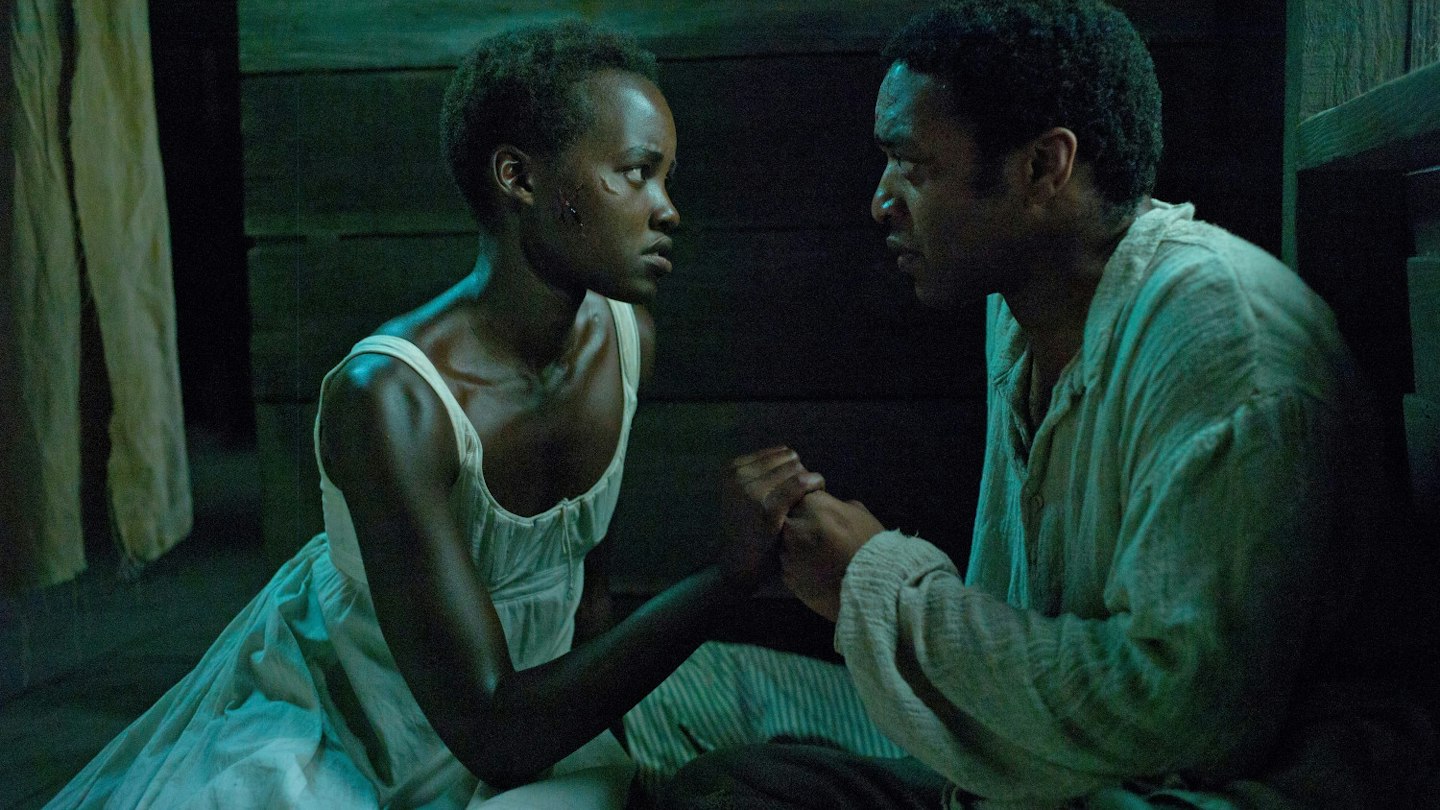
A gifted violinist and family man living in Saratoga, Solomon Northup (Chiwetel Ejiofor) is lured to Washington, D. C. by two entertainers promising work. Yet after a night of carousing, Northup wakes up in chains and is sold into a life of slavery. Falling between the twin pillars of the art house and prestige period flick, 12 Years A Slave is history lesson as horror film - powerful, visceral and affecting. And after years of being great in everything, Chiwetel Ejiofor shines in a lead worthy of his immense talent.
Read the Empire review here.
Paddington (2014)
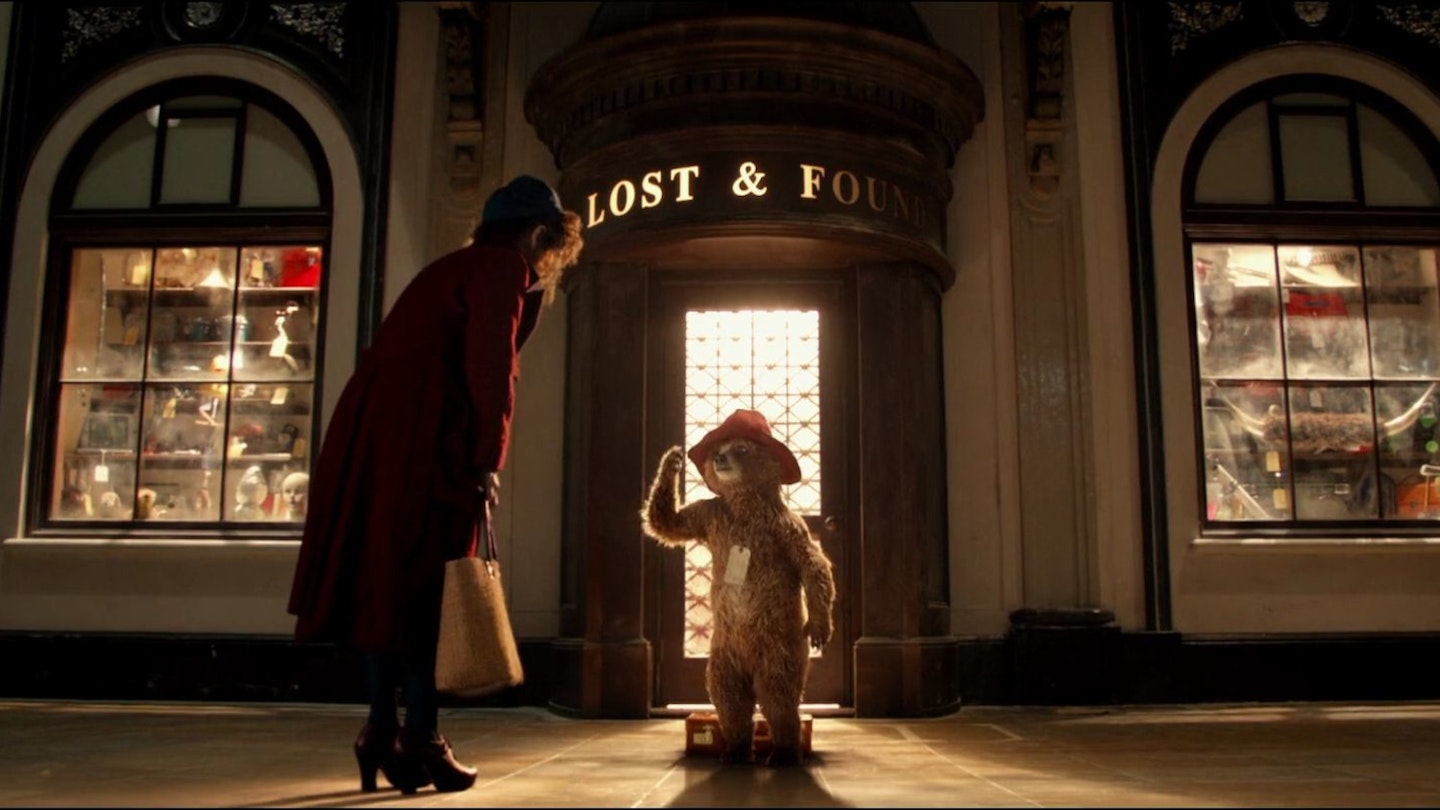
Anyone who has read Empire or listened to the podcast knows how much we love Paddington, the adaptation of the beloved children's stories. An exceedingly family-friendly film about an exceedingly friendly family, Paul King's movie is a Pixar-level delight that's whimsically, quirkily British – a pure, pleasant surprise. Ben Whishaw, in a role at one point remarkably set for Colin Firth, brings guileless charm to the Peruvian marmalade lover, whilst the human characters offer abundantly warm support. The sequel, boasting a sublimely self-deprecating star turn from Hugh Grant (who’s set to collaborate with King once more as an Oompa Loompa in the upcoming Wonka), is just as good - as sweet and sharp as marmalade.
Read the Empire review here.
Little Women (2019)
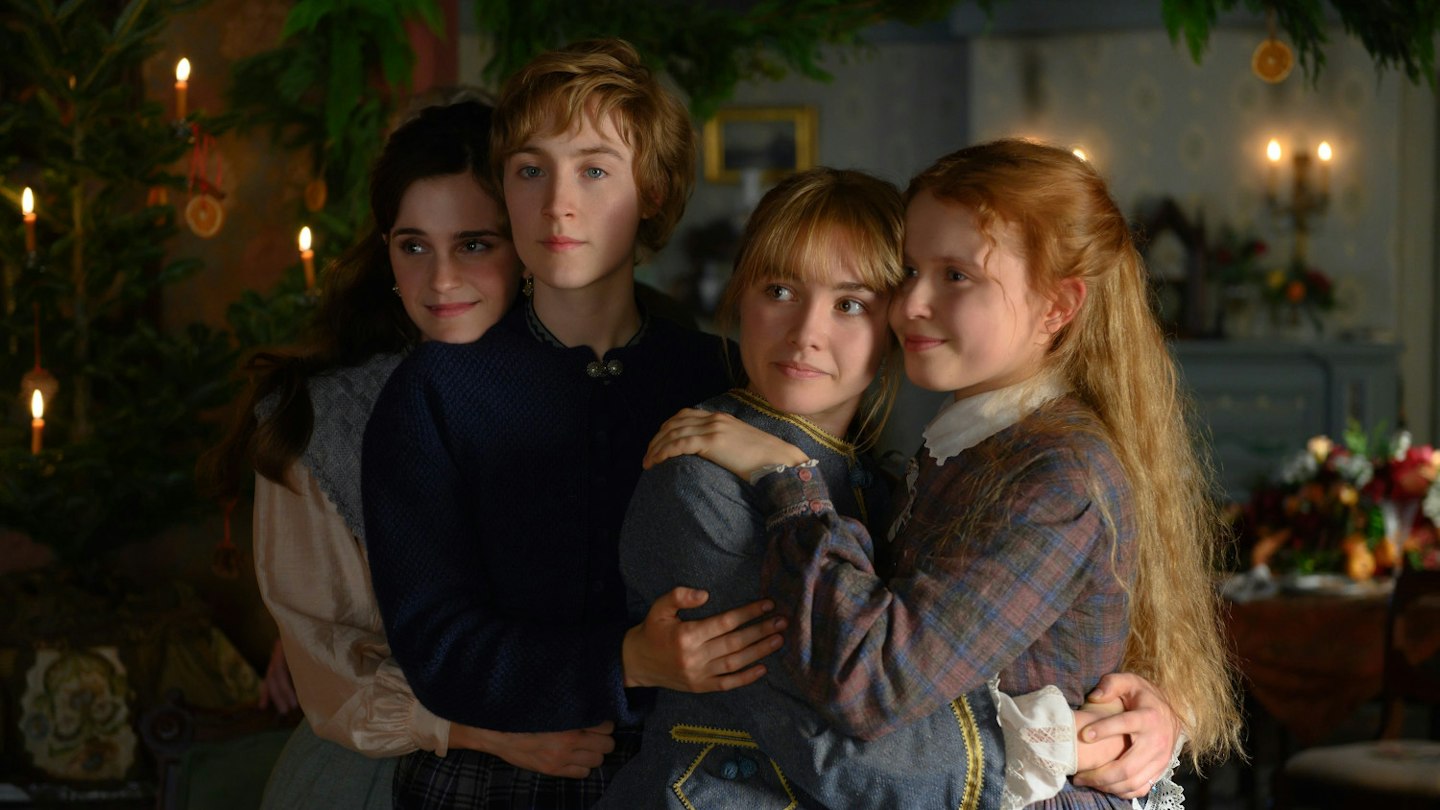
After seeing phenomenal success with her directorial debut Lady Bird, Greta Gerwig turned her attention to Louisa May Alcott's classic novel Little Women. The result is a refreshing update on the story of the March sisters told via one of the best young ensemble casts in recent memory – including repeat collaborator Saoirse Ronan as Jo, Florence Pugh as Amy, Timothée Chalamet as Laurie and Emma Watson as Meg, alongside matriarchs Meryl Streep and Laura Dern. Gerwig manages to match the quaint, sincere romanticism of the period setting with her signature smart writing, hopping between timelines for maximum emotional impact. Chemistry crackles between Chalamet and Ronan, then Chalamet and Pugh, and the sisterly bond between the four titular females make Gerwig’s film a warm, wintry delight.
Read the Empire review here.
There Will Be Blood (2007)

A searing, scorched-Earth cinematic vision, Paul Thomas Anderson's oil-prospector epic There Will Be Blood has an inky heart and a pitch-black sense of humour to match. Daniel Day-Lewisis on flaming form as Daniel Plainview, a relentless capitalist who'll do deplorable things in order to secure his fortune. In fact, he'll drink your milkshake – he'll drink it right up. Beginning with an extended sequence of Plainview scrabbling around in the dirt, this is an earthy, elemental epic, soundtracked by Jonny Greenwood's score of droning strings and clattering percussion. Anderson's sweeping, meticulous filmmaking is a grand canvas for Day-Lewis' astonishing central performance, and the degradation of Plainview's soul makes for captivating viewing. Be warned: you'll be barking lines like, "I've abandoned my child!" for weeks.
Read the Empire review here.
The Lost Daughter (2021)
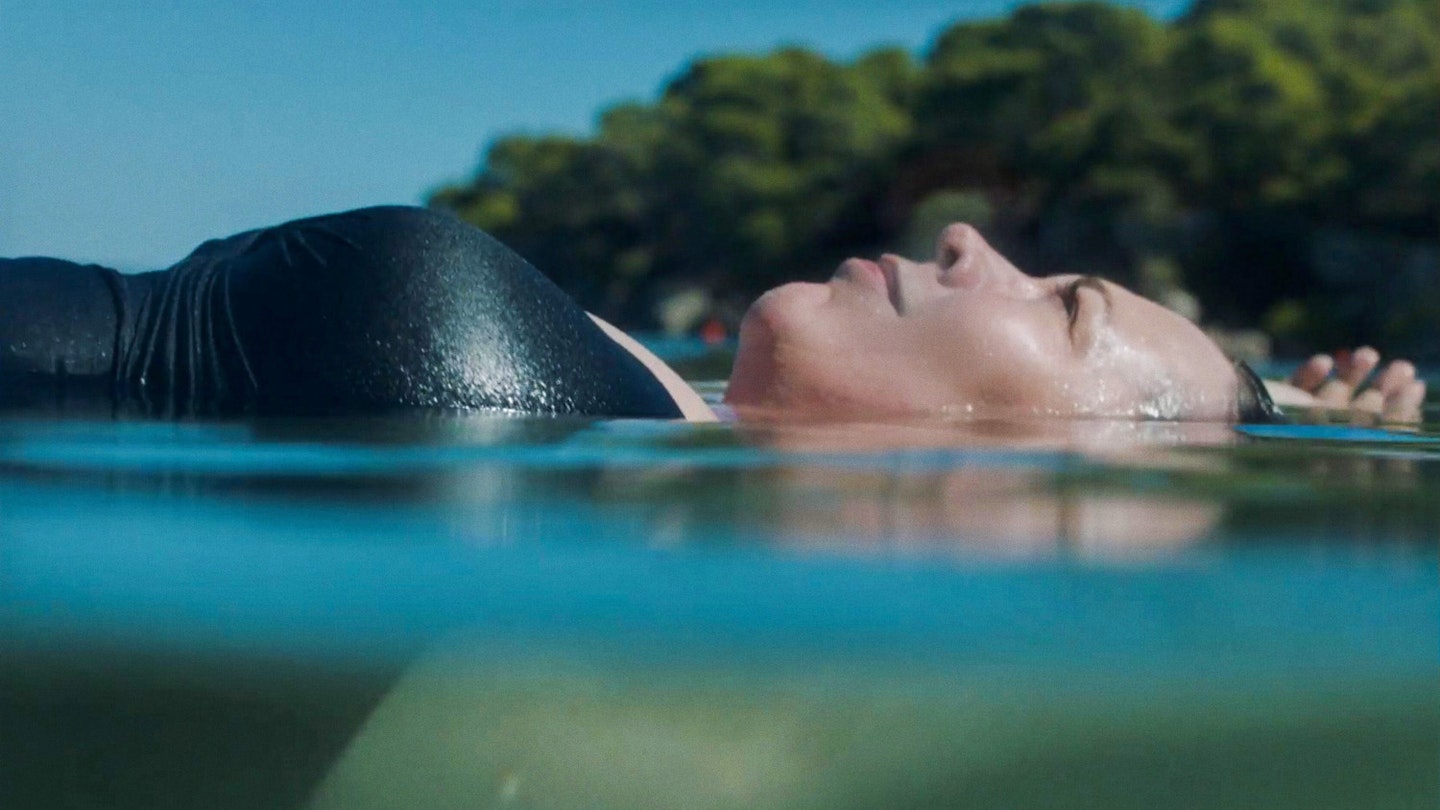
Maggie Gyllenhaal's powerful, dark directorial debut The Lost Daughter features National Treasure Olivia Colman in one of her best recent performances (which is saying something, given who we're talking about). Gyllenhaal adapts Elena Ferrante's visceral 2006 book with quiet style, offering a story of female experience that relishes the ugly, uncomfortable parts of being a mother, daughter, lover, stranger. Dakota Johnsonand Jessie Buckley (the latter playing the younger version of Colman's character) also shine.
Read the Empire review here.
Nightcrawler (2014)
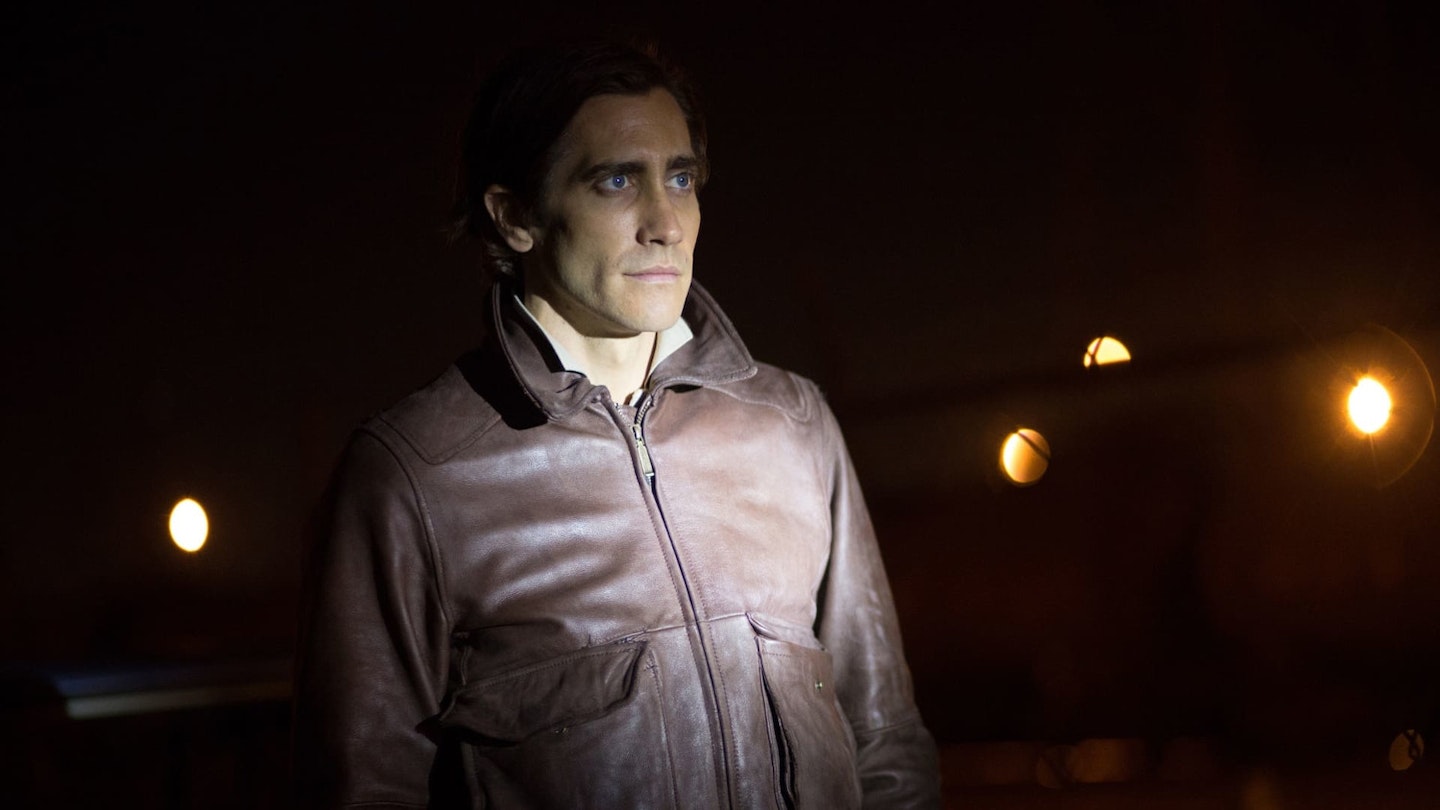
No, not a solo outing for everyone's favourite teleporting X-Man, but a thriller seeped in pitch-black comedy starring Jake Gyllenhaal as Lou Bloom, a freelance photographer who thrives on filming the aftermath of violent accidents and crimes in LA and selling the footage to news networks. Bloom is a nightmarish creation that Gyllenhaal imbues with a wild-eyed intensity, with top supporting performances from Riz Ahmed, Rene Russo and Bill Paxton in one of his final roles. A searing character piece and gripping psychological noir all in one, director Dan Gilroy gave viewers one of the defining indictments of our ravenous media and consumer culture with this one.
Read the Empire review here.
Creep (2014)
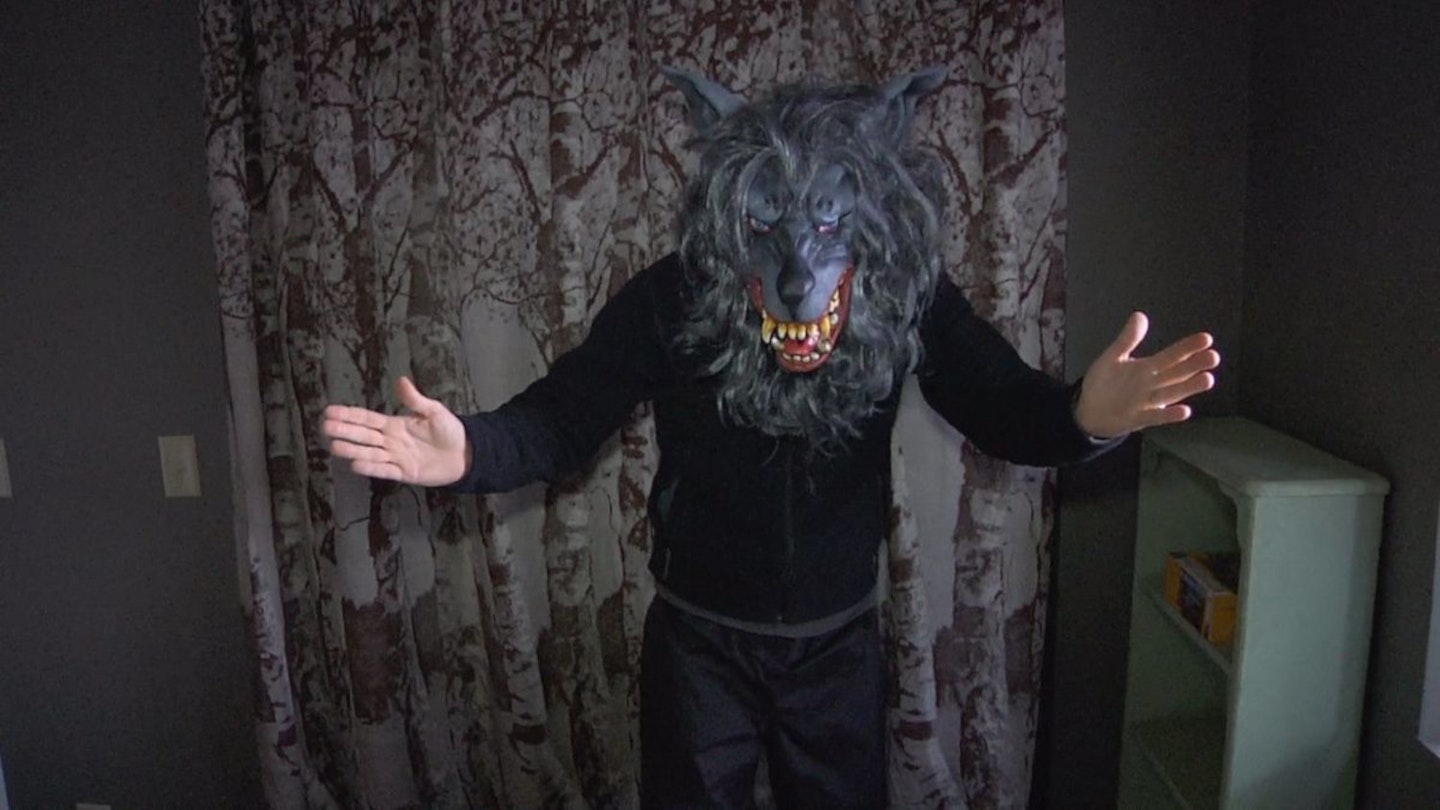
Yes, it's found-footage, but this psychological ordeal from co-writers, directors and stars Mark Duplass and Patrick Brice is more than worth its unassuming 77 minutes of your time. Brice is the videographer who answers Duplass' advertisement for a documentarian to chronicle a day in his life. But as we get past the initial 24 hours it becomes clear that the real agenda is something altogether different. A masterclass in WTF-is-going-on tension, Creep also somehow manages to be extremely funny. Be sure to catch Creep 2 on Netflix too, which continues in equally captivating style.
Mank (2020)
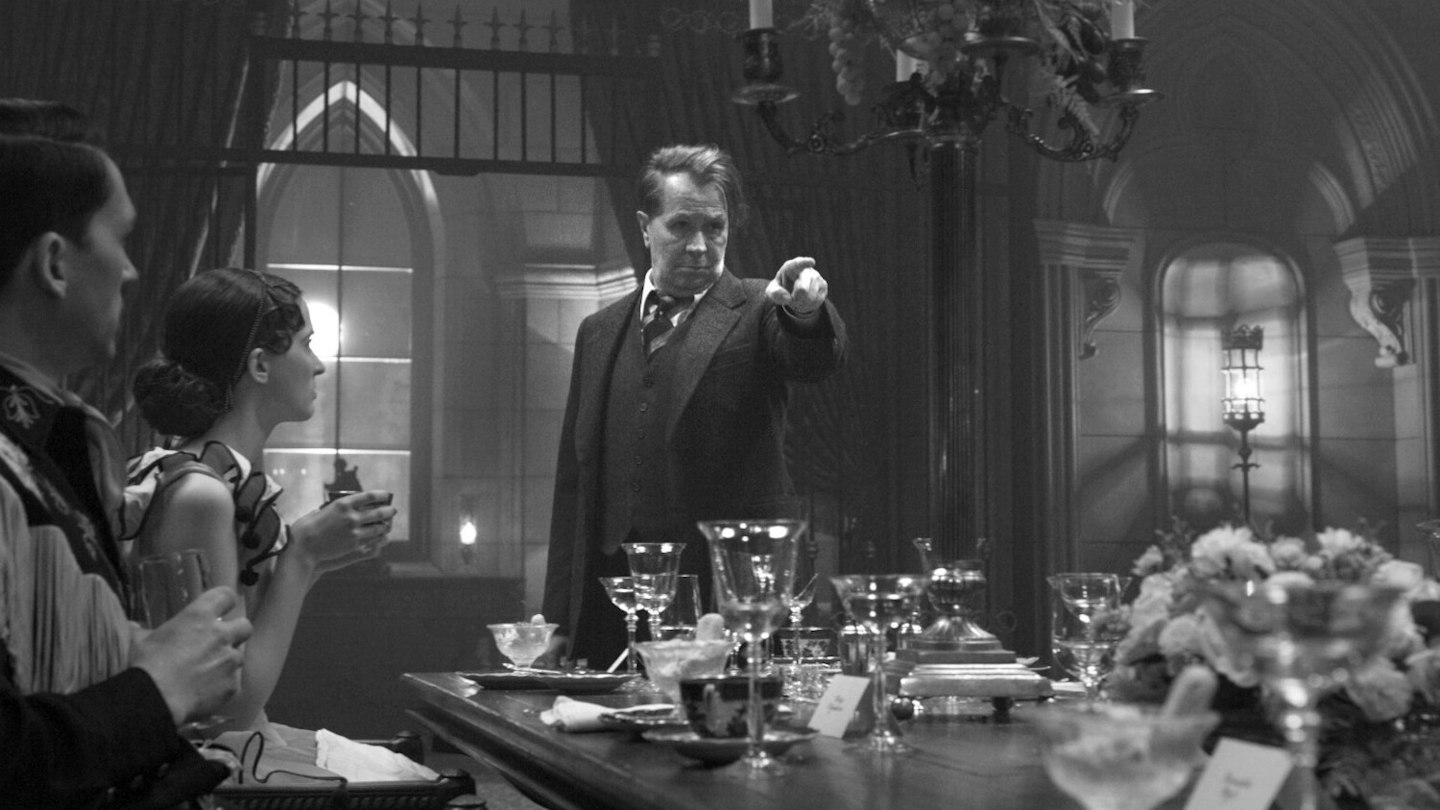
Six years after Gone Girl, David Fincher returned to movies with a film delving into the history of Hollywood itself. Mank is part origin story of, part companion-piece to Orson Welles' classic Citizen Kane – starring Gary Oldman as Kane's alcoholic screenwriter Herman J. Mankiewicz. Fincher luxuriates in depicting the old studio system of Golden Age Hollywood, but he doesn't don rose-tinted glasses for the era itself – zoning in on the cracks, inequalities and concerns of the '30s and '40s movie industry (and beyond), while tapping into resonances that still feel surprisingly relevant today (Nazis, the future of cinema). It's gorgeously shot and impeccably performed – not just by Oldman, but by an ensemble including Amanda Seyfried as actor Marion Davies, Charles Dance as Kane-alike publishing magnate William Randolph Hearst, and Tom Burke as a sparingly-deployed Welles. Mank is a film that's sympathetic to the plight of the writer, given added pathos in the fact that its screenplay was written by Jack Fincher – David's own late father. Not necessarily for everyone, but a treat for film buffs.
Read the Empire review here.
Gerald’s Game (2017)

Director Mike Flanagan manages the near-impossible task of making Stephen King's (almost) single-setting survival thriller Gerald's Game impressively cinematic. Carla Gugino's Jessie is left fighting for her life when her husband has a heart attack in the middle of a sex game, leaving her handcuffed to a bed in a secluded house. Outside, a wild dog starts to sniff out fresh meat, while Jessie's grip on sanity starts to slip. It's a thriller set-up with true horror execution — including an astonishingly gory finale just waiting to burn itself into impressionable minds.
Okja (2017)
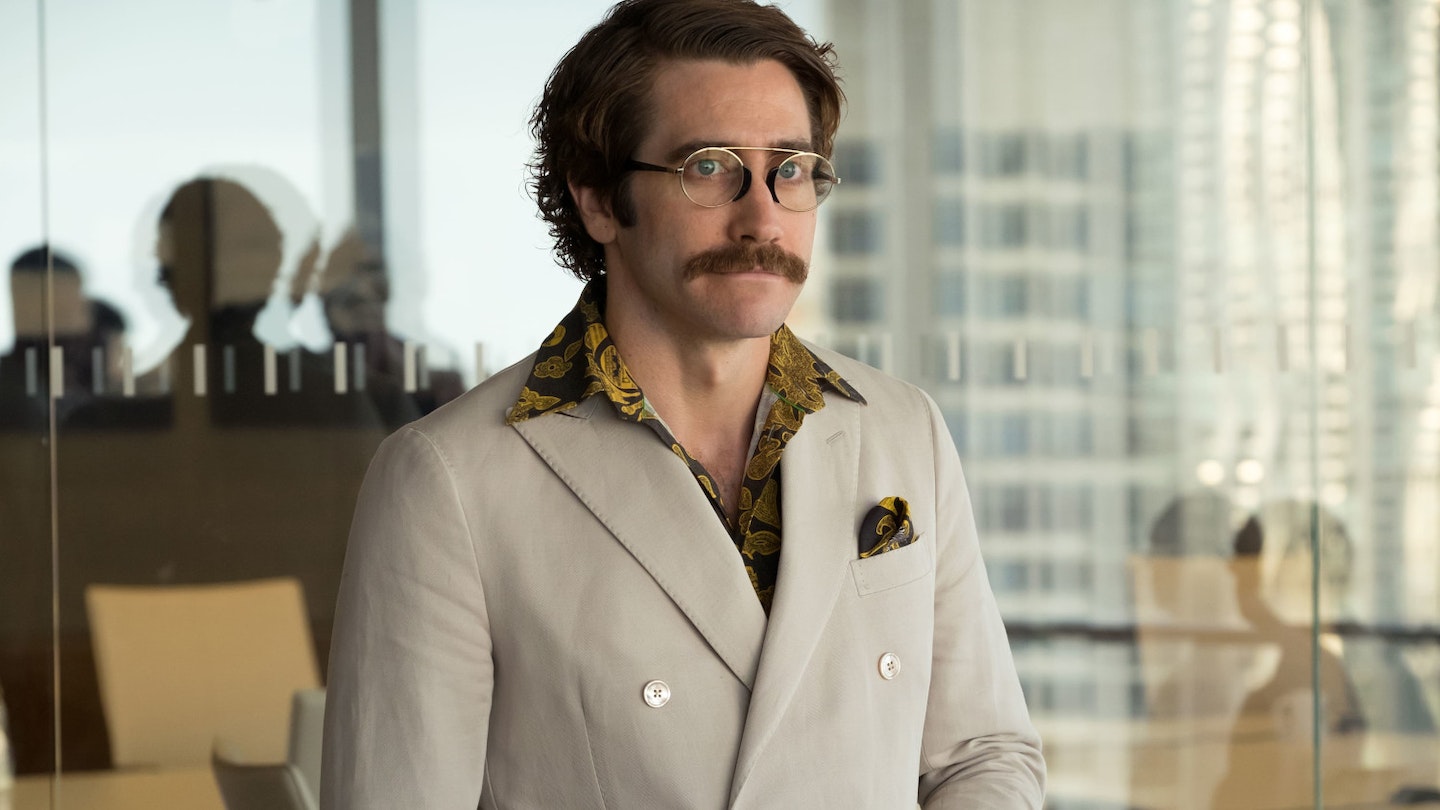
Enjoyed the wild swings of Parasite? Check out Bong Joon Ho's darkly satirical girl-meets-genetically-modified-super-pig story. Okja is an environmental fable, and a fantastical story of friendship between a young girl (Ahn Seo-hyun) and a strange, shy and introverted animal on a long journey together. Okja itself is a sort of hippo-pig, created for its meat by Tilda Swinton's shady multinational company. It's not often you get dystopian sci-fi and wide-eyed Spielbergian movie magic in the same stew, but director Bong and writer Jon Ronson somehow mix the disparate ingredients perfectly.
Read the Empire review here.
Once you’ve caught all of these, why not check out our hand-picked selection of what to watch on Disney+? We also have a comprehensive rundown of all the must-see movies and TV shows on Apple TV too!
